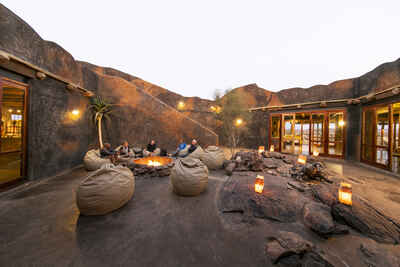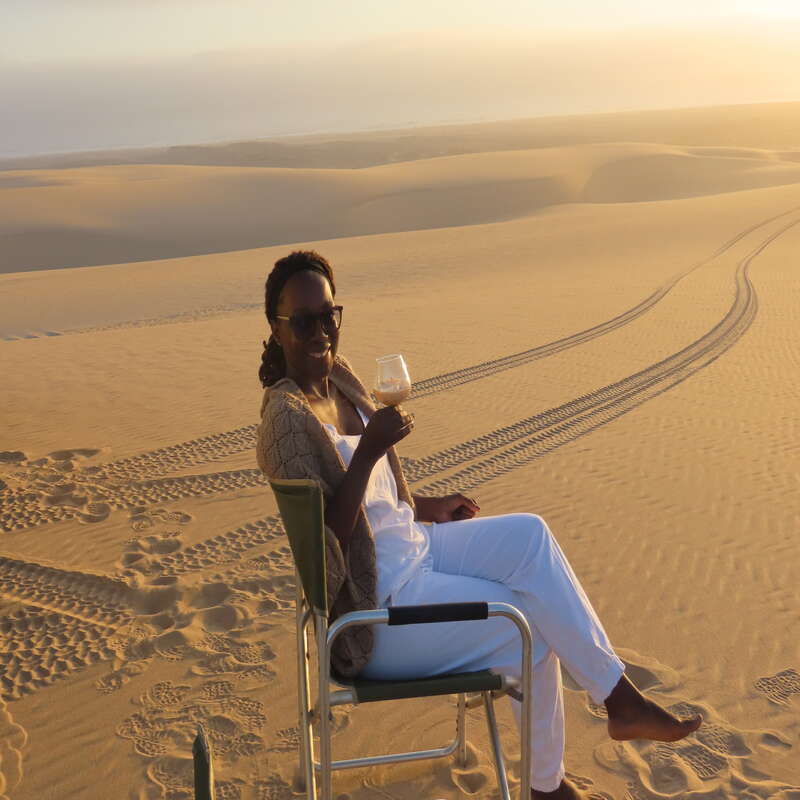About Doro Nawas
A partnership with the local community, the fortress-like Doro Nawas is strategically placed for visiting the highlights of Damaraland.
Brooding atop a rugged hill like some dark, Moorish castle, Doro Nawas boasts 360-degree views across the surrounding plains.
Like all proper castles, it comes complete with great big wooden doors, a crackling fireplace, and a rooftop look-out post where 21st-century inhabitants can gaze at the stars – or scan the plains for ostrich or even desert-adapted elephants.
Encircling the slopes below, steeply thatched chalets are cool and dark inside, contrasting with the harsh sun above. A cooling fan and extra blankets are on hand to counter the extremes of temperature, and fluffy towels bring warmth to the spacious bathrooms.
Outside, a shaded veranda features a shower-with-a-view, with privacy guaranteed by simple wooden palisades. But when the veranda really comes into its own is after dark, when the beds can be rolled out for you to cosy up under the stars.
Born of a joint venture between Wilderness Safaris and the Doro !Nawas community, the lodge is an outstanding example of such partnerships.
A stay here is particularly memorable as most of the staff are drawn from the area, giving guests the opportunity of an insight into their culture that is far more personal than any structured village visit.
Our view
Doro Nawas Camp is a striking, fortress-looking lodge in an attractive location with friendly staff. It is a good choice for a one- or two-night stop in Damaraland, especially if you are self-driving and want the flexibility to decide on the day whether to drive yourself to places like Twyfelfontein, or to take a guided trip.
Accommodation
16 chalets
Children
Best for 6+
Open
All year
Activities

4WD Safari

Birdwatching

Cultural excursion

Guided walking safari

Night drive

Private activities

Sleeping under the stars
Traveller reviews of Doro Nawas
504 real, un-edited reviews from Expert Africa's travellers.
Arrived 12 May 2025, 2 nights
"Doro Nawas review"
Overall rating: Excellent
Arrived 17 Apr 2025, 2 nights
"A spectacular lodge"
Overall rating: Excellent
Arrived 9 Apr 2025, 2 nights
"Doro Nawas review"
Overall rating: Excellent
Arrived 23 Mar 2025, 2 nights
"Doro Nawas review"
Overall rating: Excellent
Arrived 12 Mar 2025, 2 nights
"Doro Nawas review"
Overall rating: Excellent
Arrived 18 Feb 2025, 1 nights
"Doro Nawas review"
Overall rating: Excellent
Arrived 21 Feb 2025, 1 nights
"Doro Nawas review"
Overall rating: Excellent
Arrived 28 Dec 2024, 2 nights
"Doro Nawas review"
Overall rating: Excellent
Arrived 17 Nov 2024, 3 nights
"Doro Nawas review"
Overall rating: Excellent
Arrived 27 Oct 2024, 2 nights
"Doro Nawas review"
Overall rating: Excellent
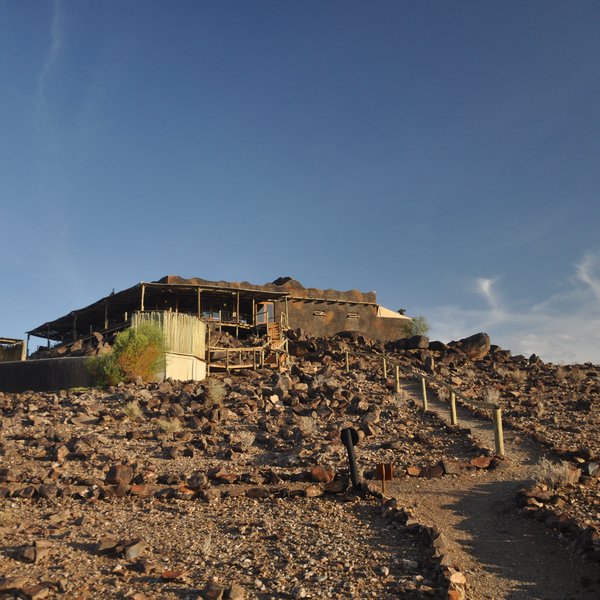
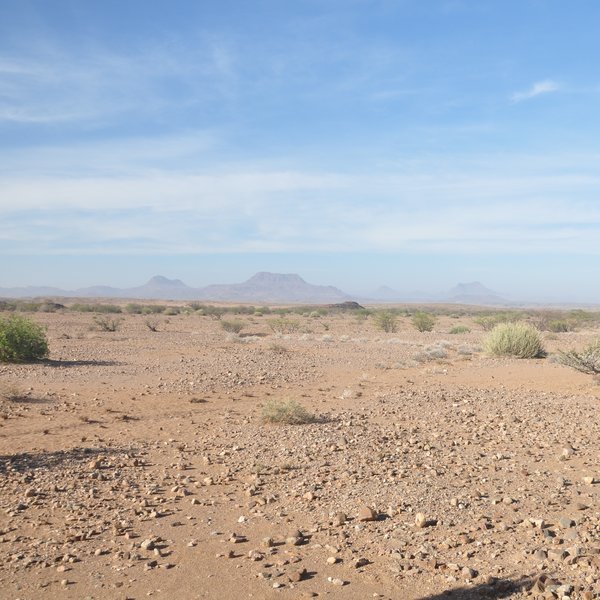
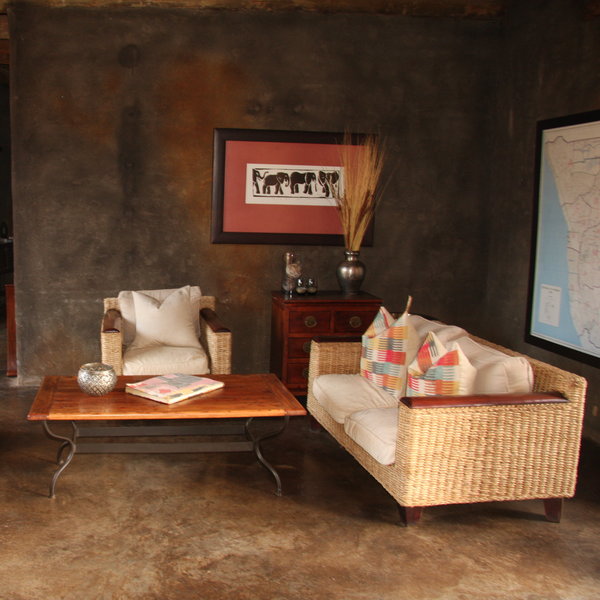
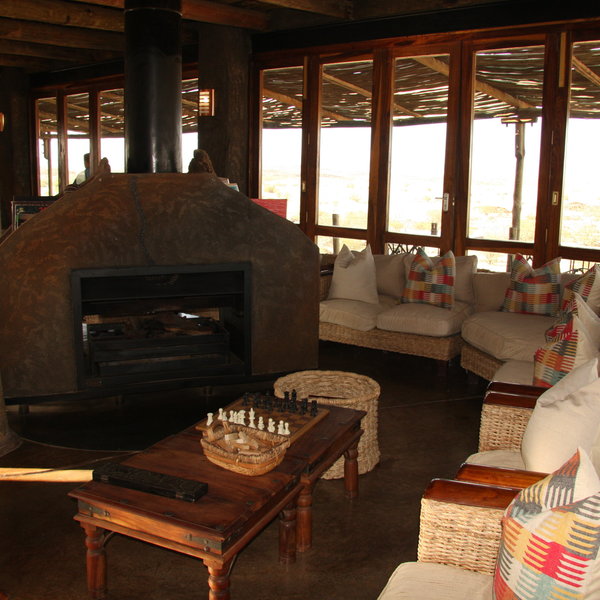
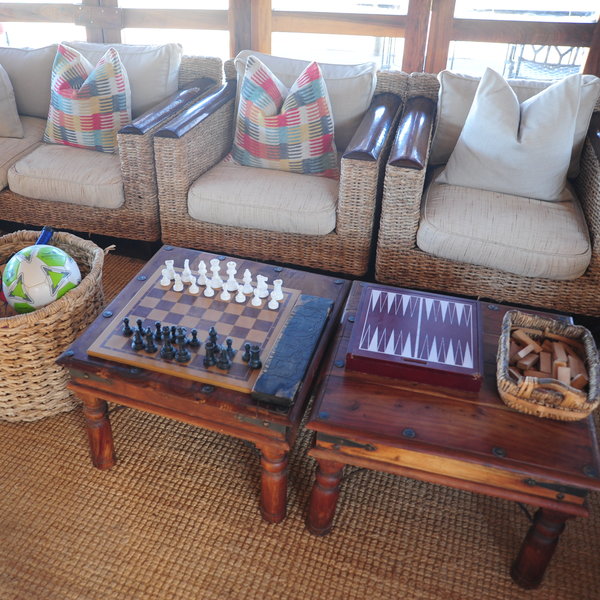
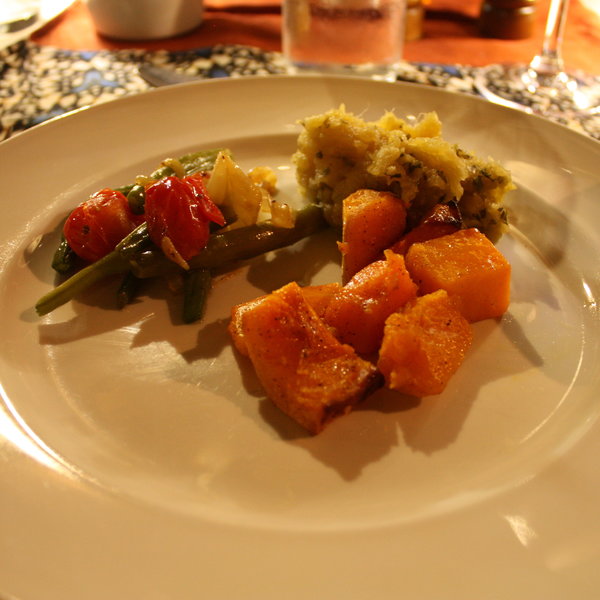
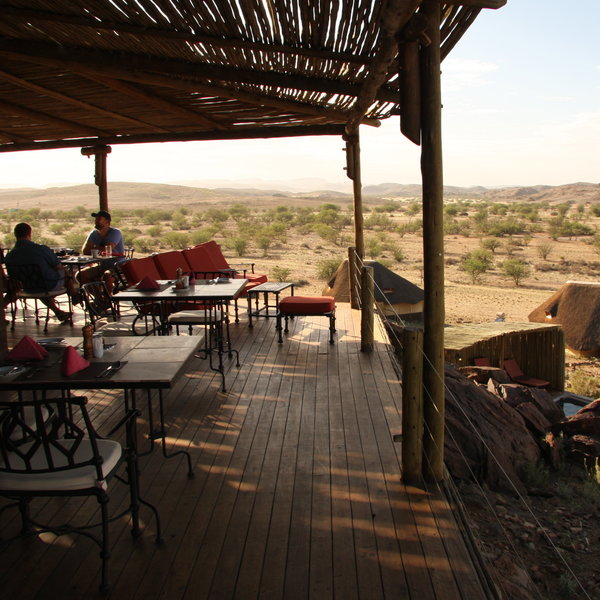
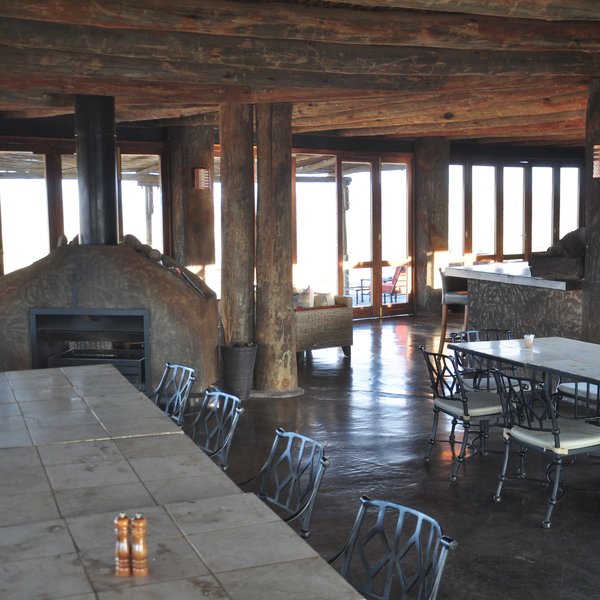
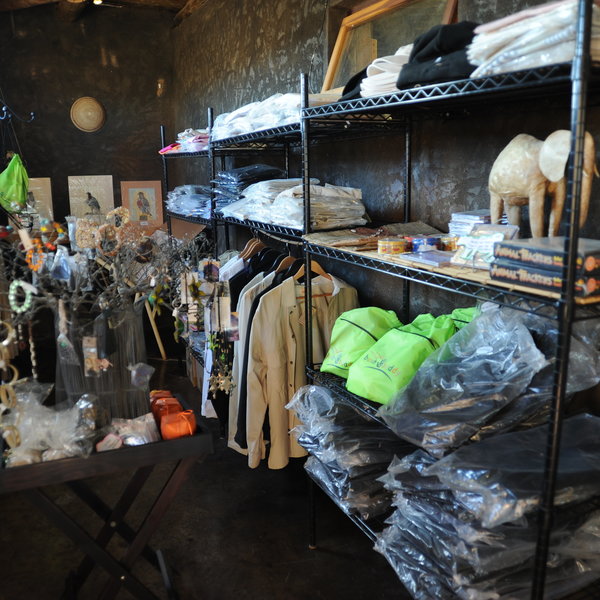
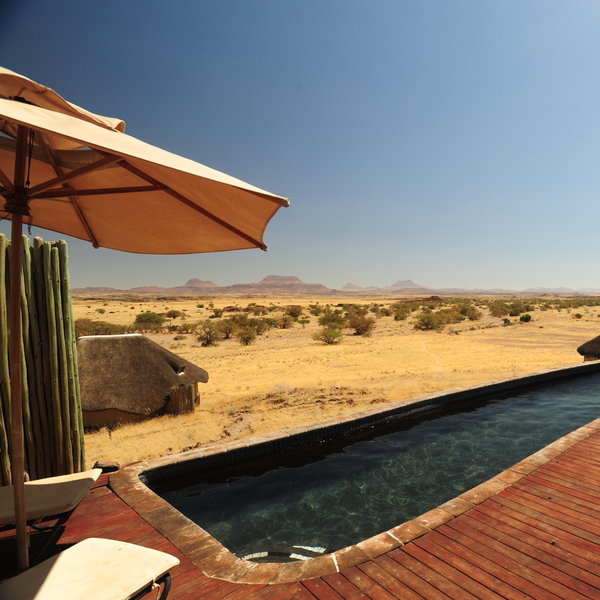
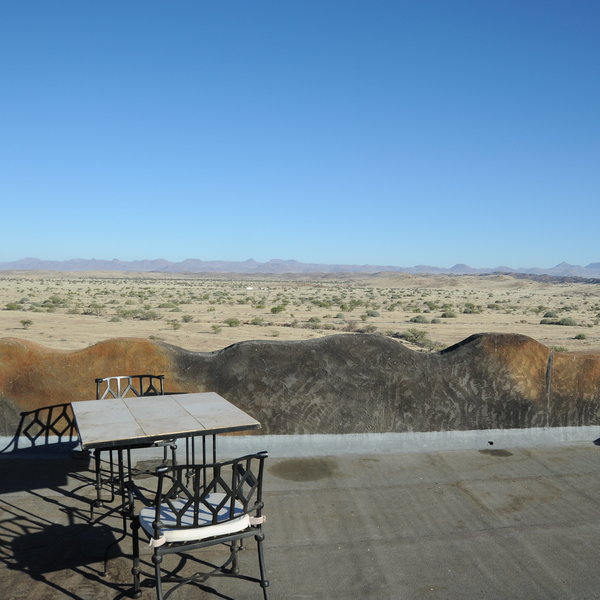
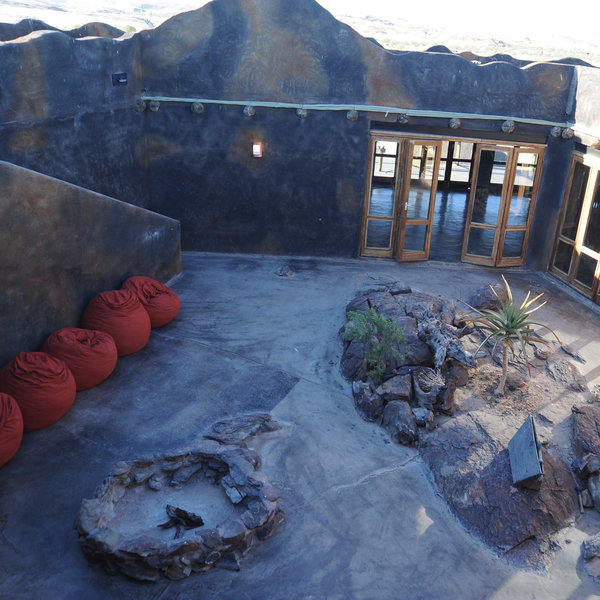
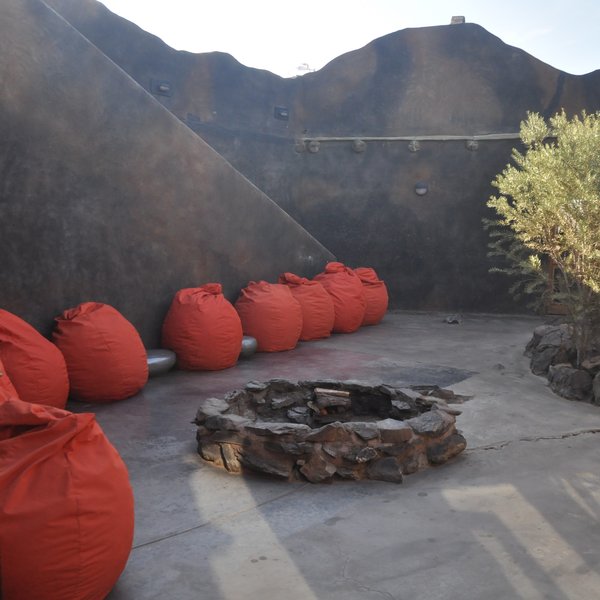
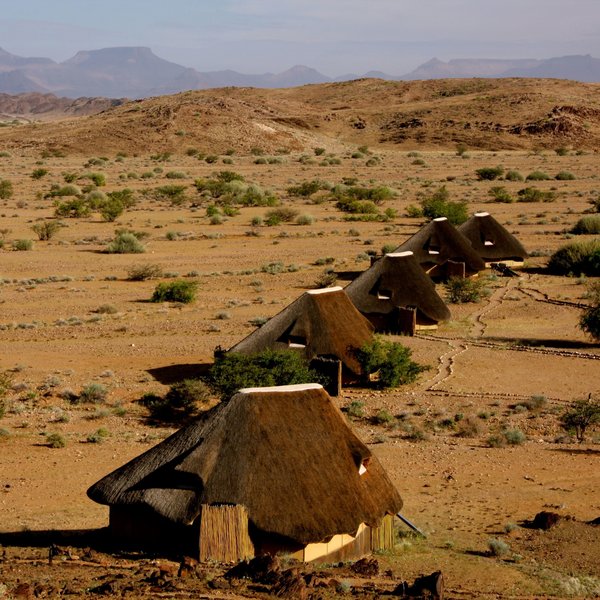
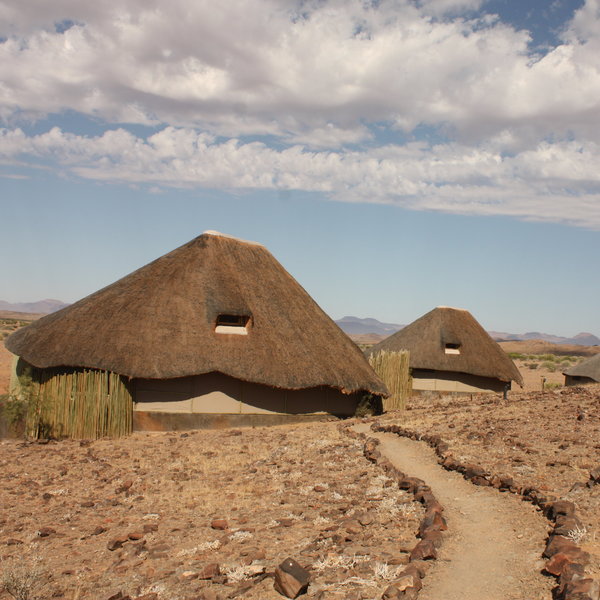
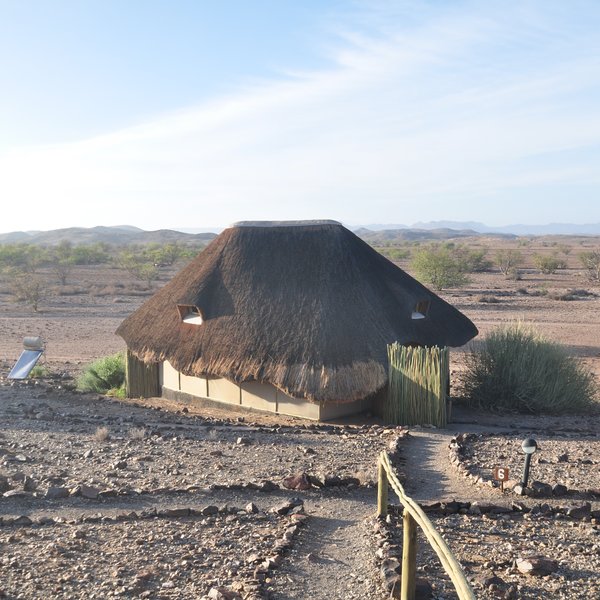
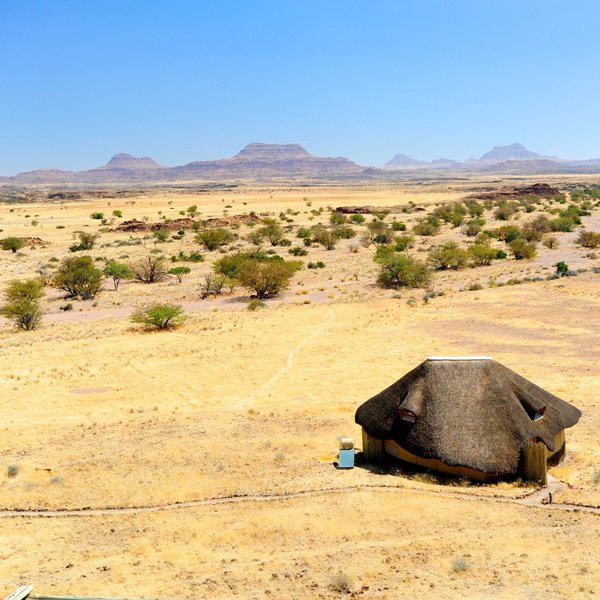
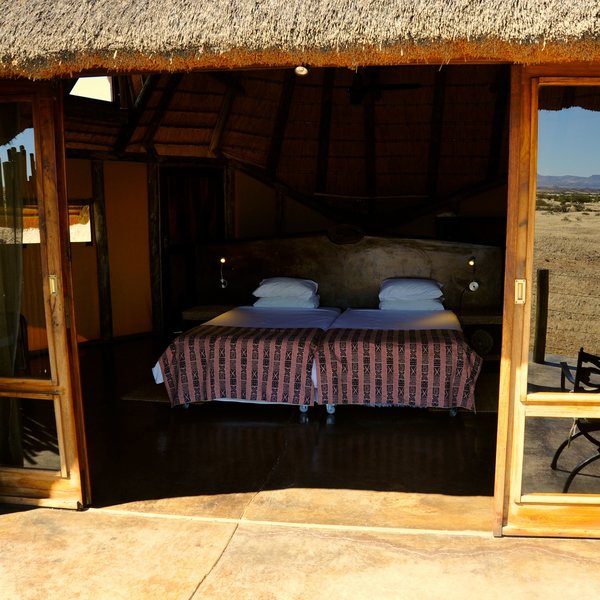
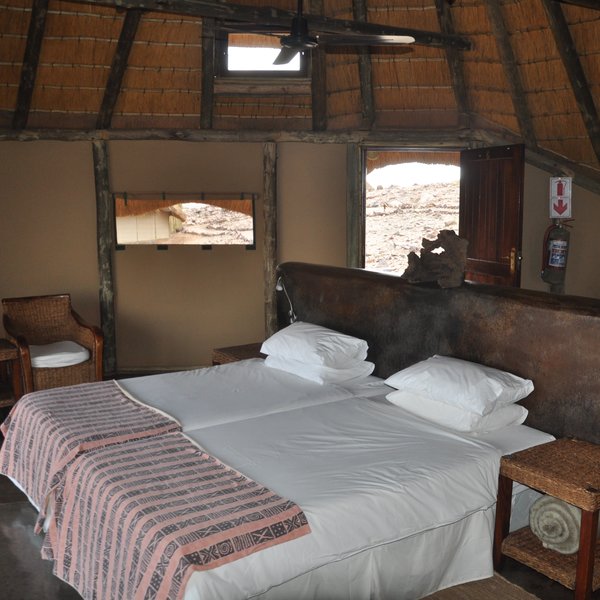
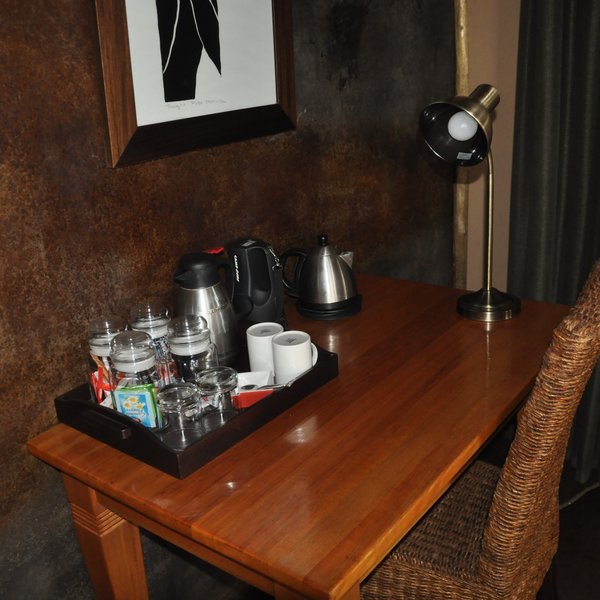
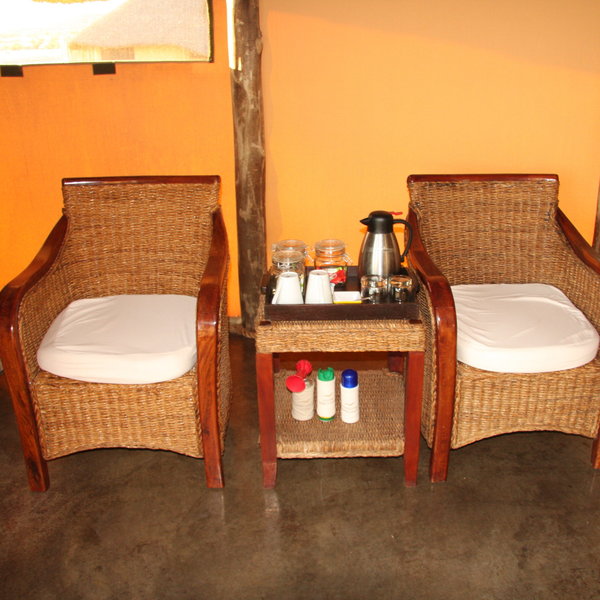
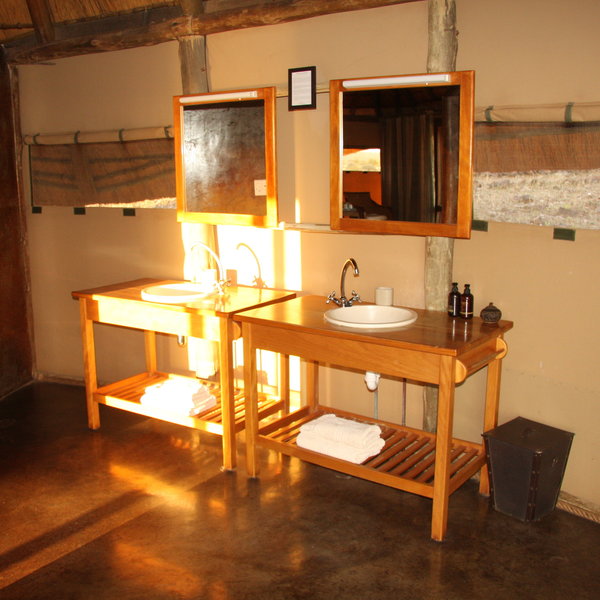
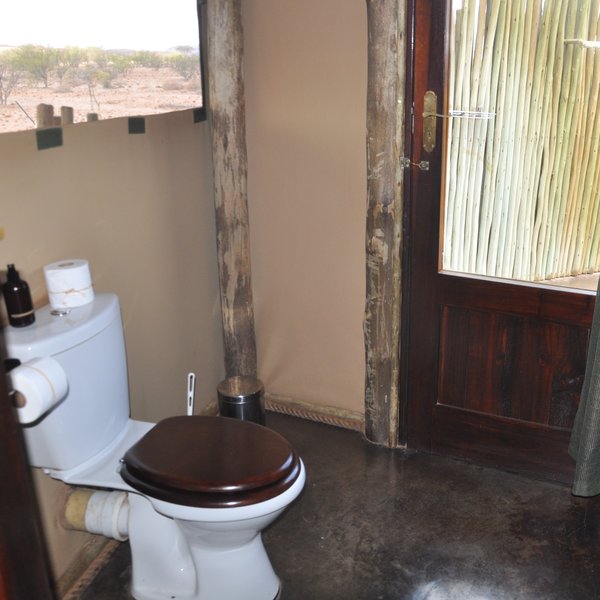
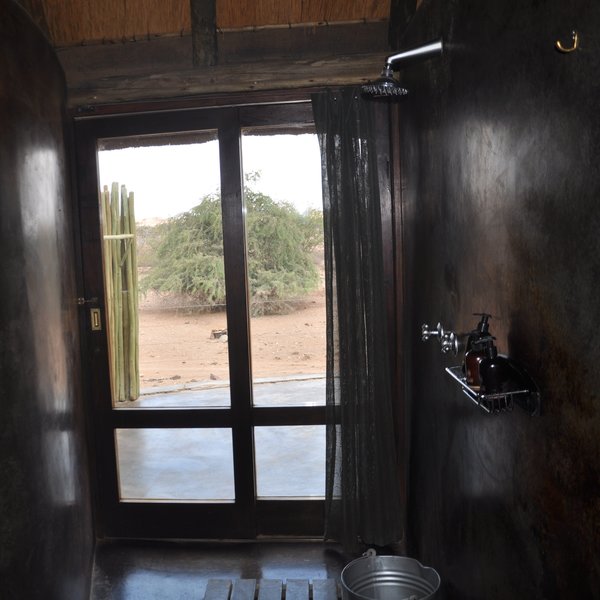
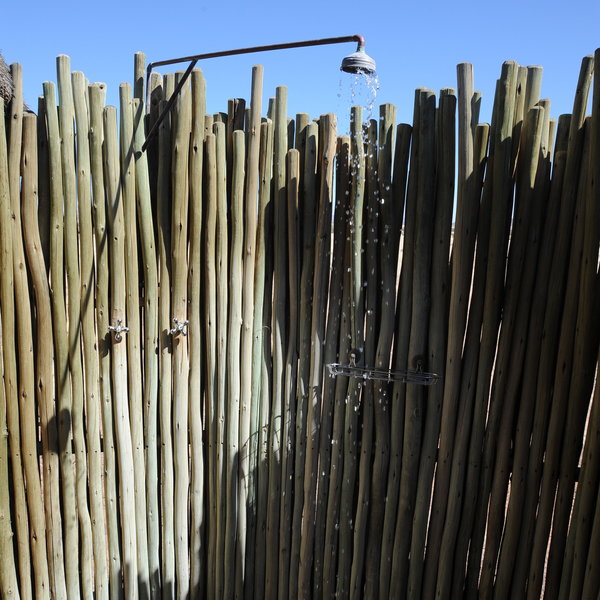
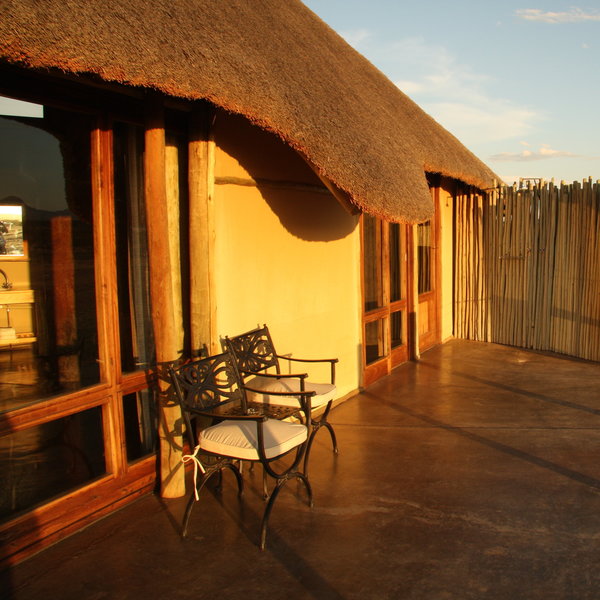
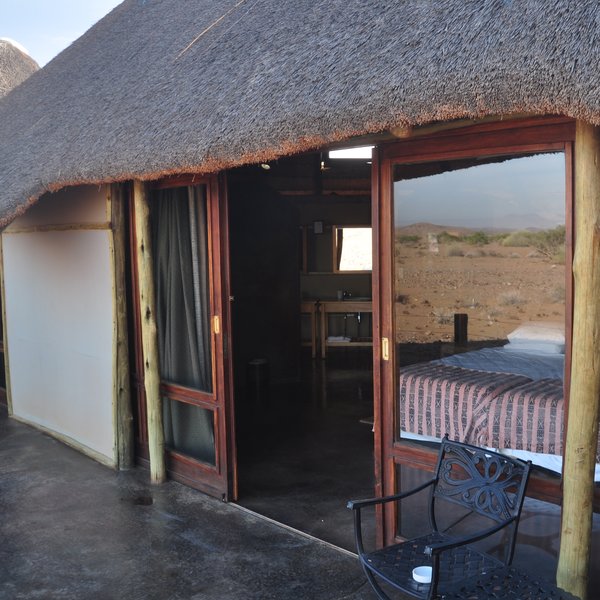
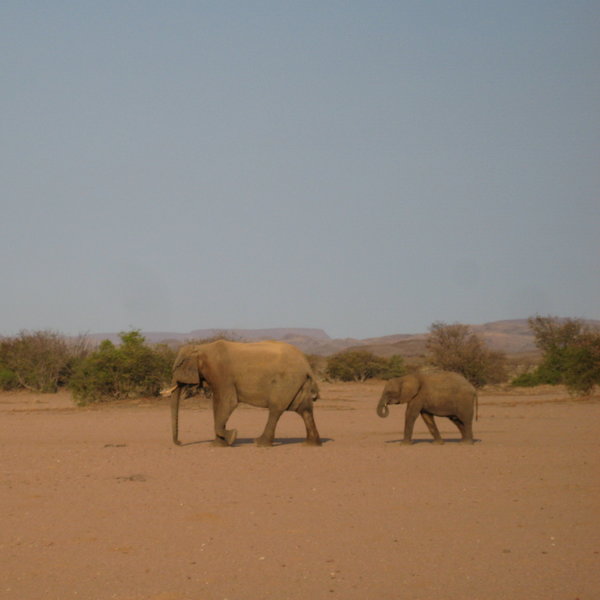
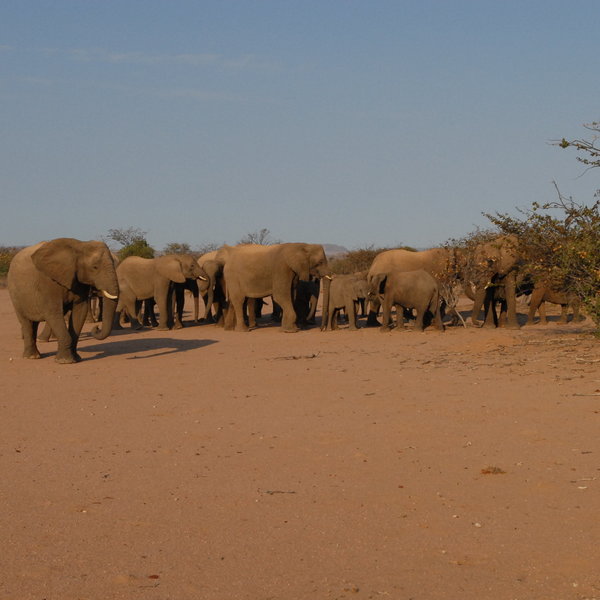
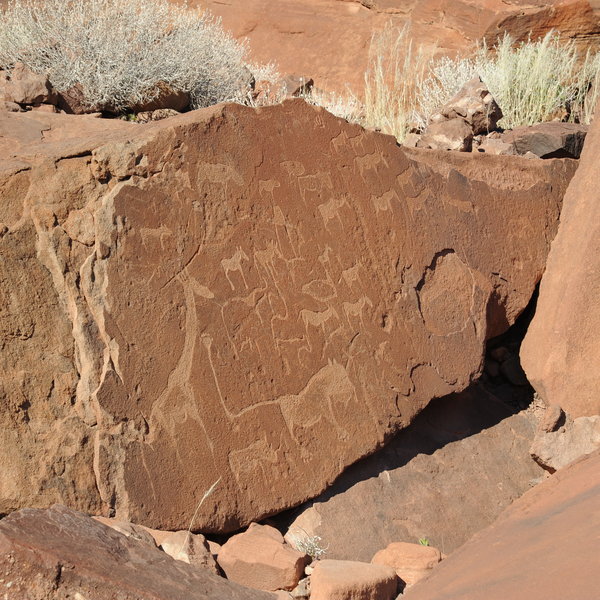
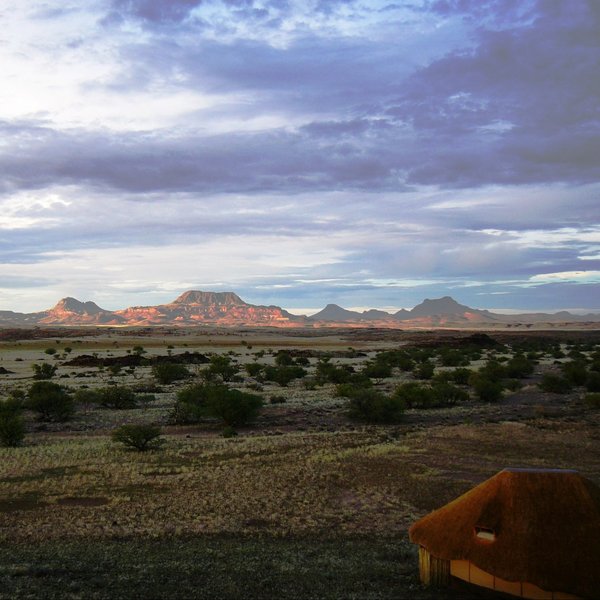
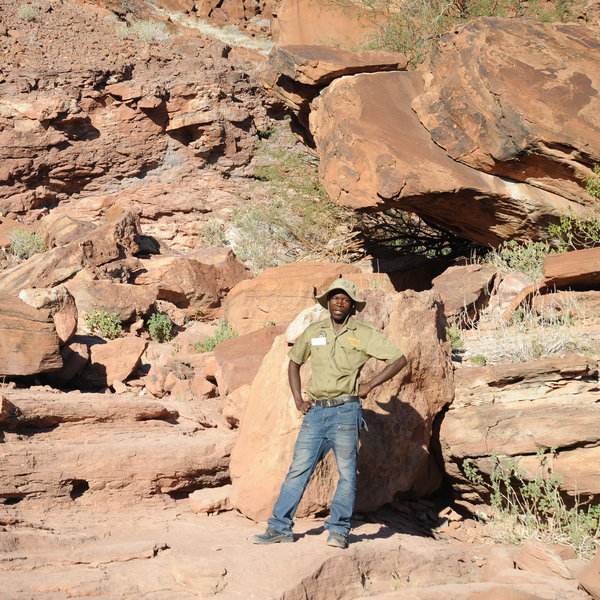
Expert Africa's gallery
When we travel we take lots of photos ourselves to give you a real and un-edited view of the safaris. See our 46 pictures of Doro Nawas to get the candid view.
View gallerySafaris visiting Doro Nawas
Just ideas, we'll always tailor-make a trip for you
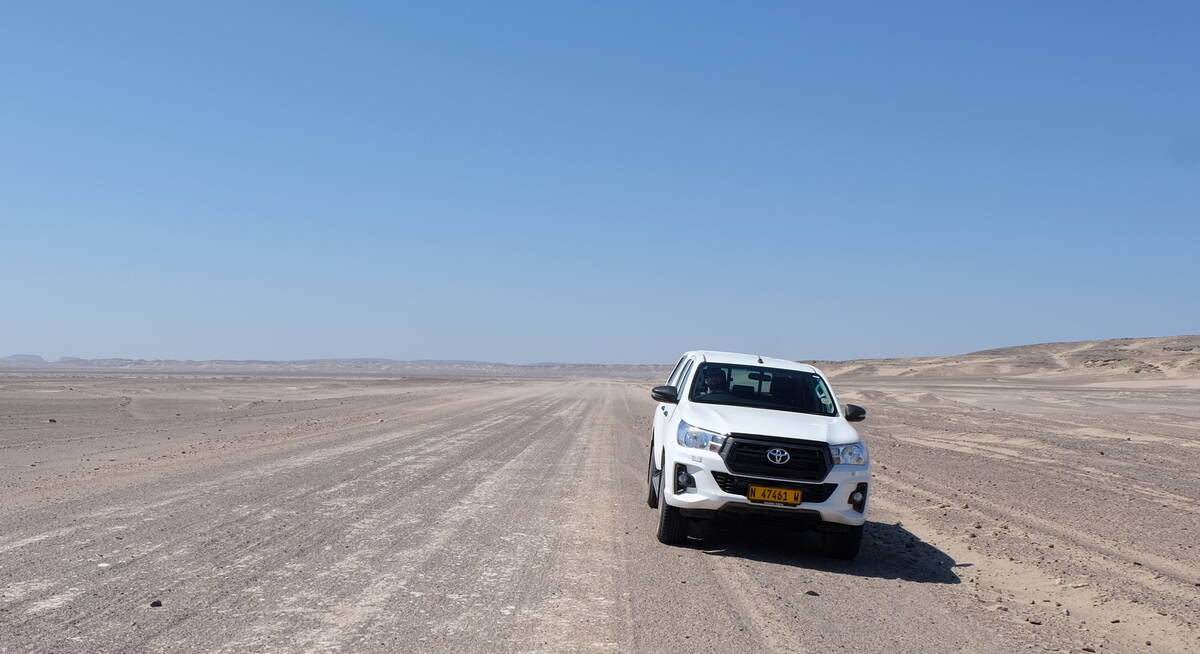
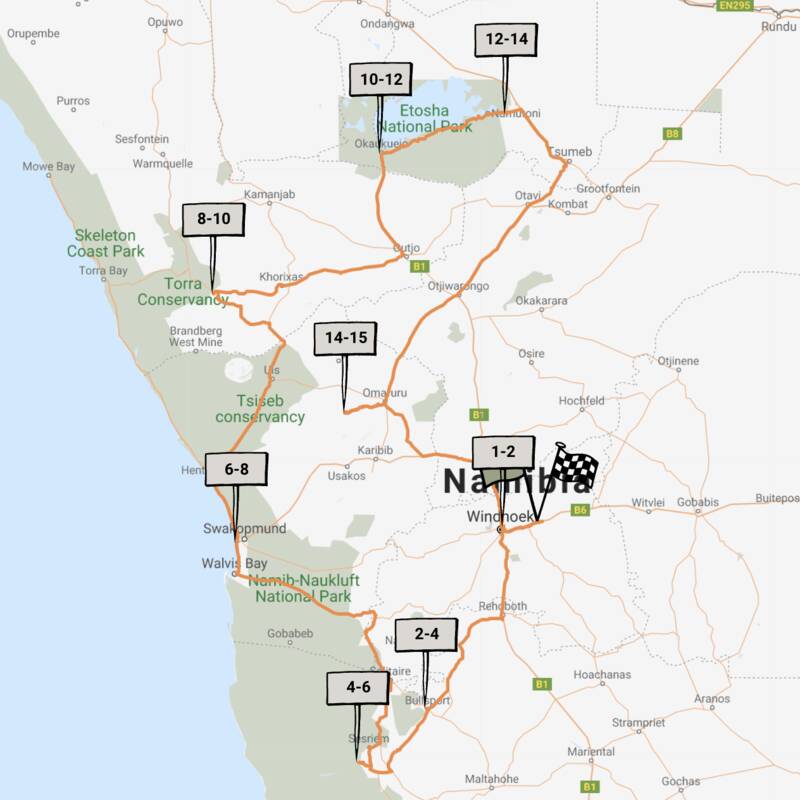
Caracal Self-drive Safari
14 days • 8 locations • 1 country
WINDHOEK AIRPORT TO WINDHOEK AIRPORT
The quintessential Namibian self-drive adventure exploring the highlights from Sossusvlei and the Namib Desert to Damaraland’s wilderness and a safari in Etosha. A great mix of accommodation and excellent value.
Visiting Namib-Naukluft, Damaraland and 4 other areas
US$3,970 - US$4,260 per person
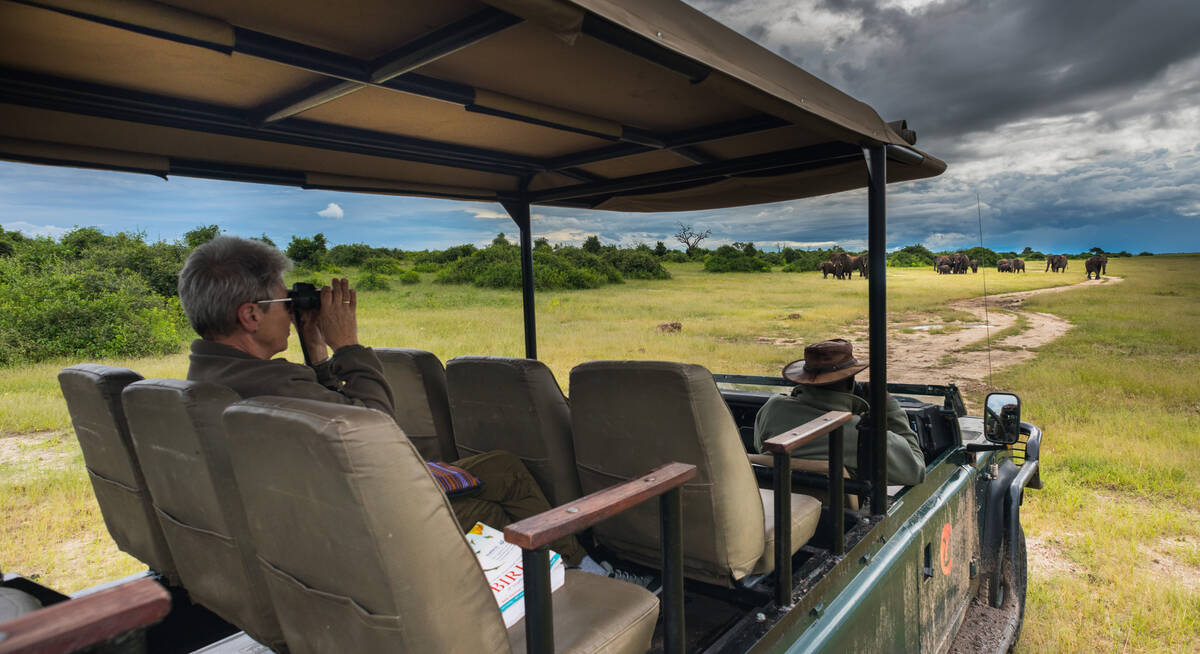
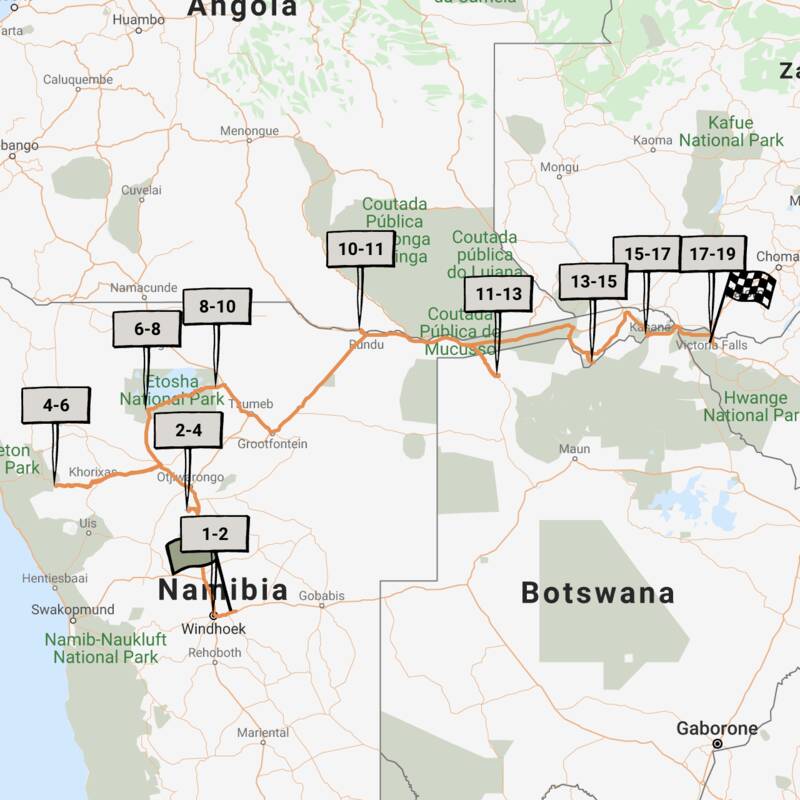
Pygmy Mouse Self-drive Safari
18 days • 10 locations • 3 country
WINDHOEK AIRPORT TO VICTORIA FALLS AIRPORT
A truly epic southern African self-drive safari adventure from Namibia’s mountains and deserts, along the lush Caprivi Strip to Botswana and Victoria Falls in Zimbabwe, staying at luxury lodges throughout.
Visiting Etosha, Victoria Falls and 6 other areas
US$9,800 - US$10,560 per person
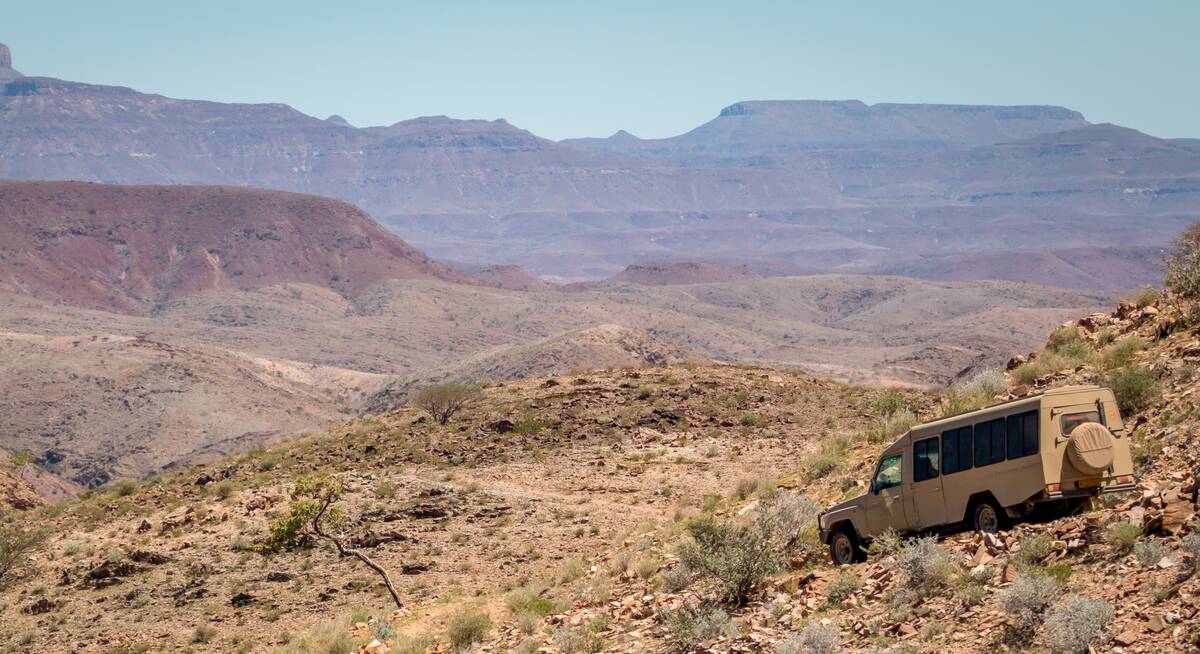
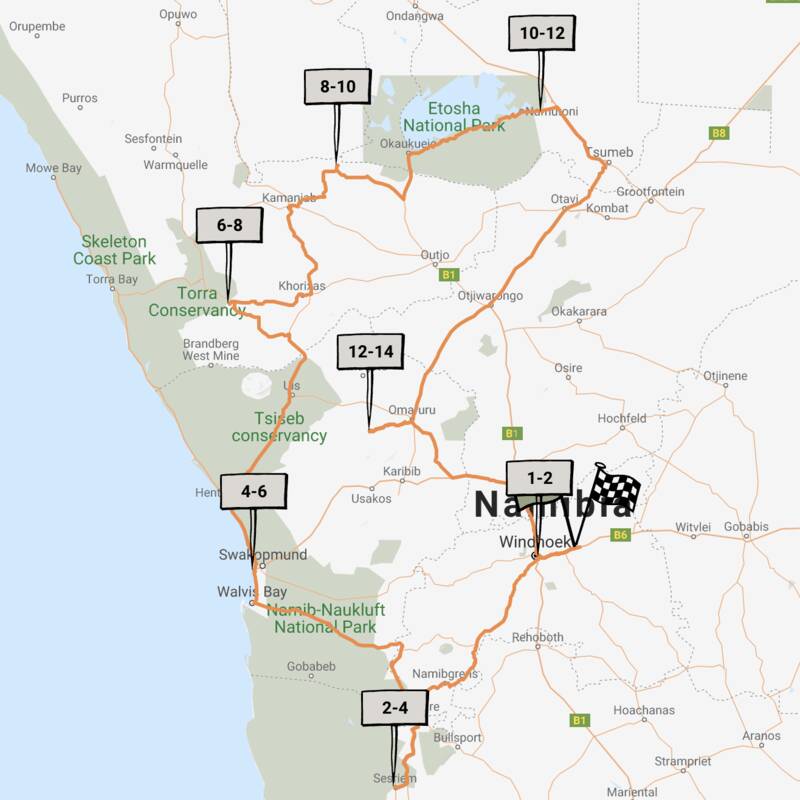
Cape Fox Guided Safari
13 days • 7 locations • 1 country
WINDHOEK AIRPORT TO WINDHOEK AIRPORT
A classic clockwise circuit around Namibia’s northern highlights with a private guide and vehicle. We can’t think of a better way to see more in this timeframe.
Visiting Windhoek, Namib-Naukluft and 4 other areas
US$11,830 - US$13,770 per person
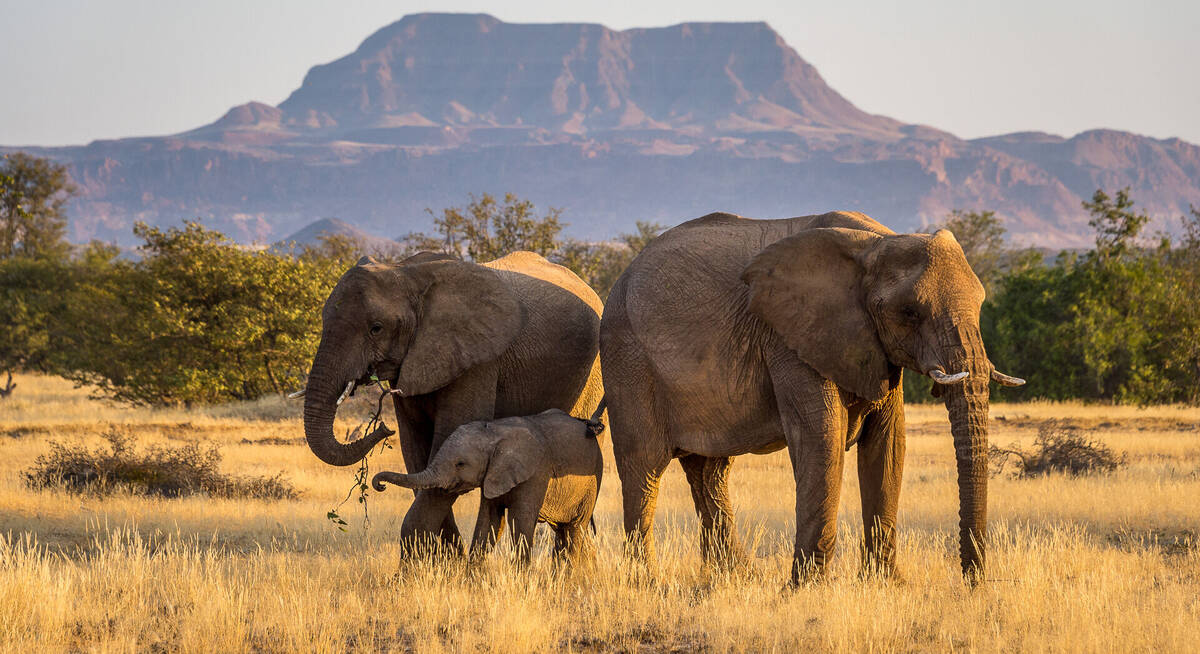
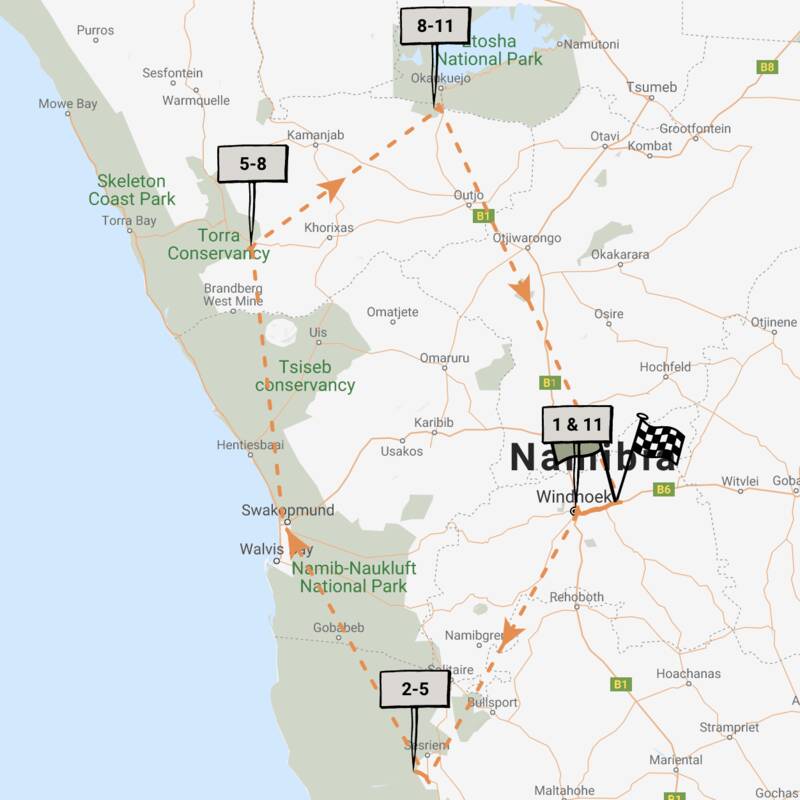
Hoopoe Fly-in Safari
11 days • 4 locations • 1 country
WINDHOEK AIRPORT TO WINDHOEK AIRPORT
This relaxed fly-in safari reveals Namibia at its best. Generous timings and a wide choice of activities help travellers to enjoy the best of the country’s most spectacular areas.
Visiting Windhoek, Namib-Naukluft and 2 other areas
US$8,200 - US$10,580 per person
Doro Nawas: Our full report
Doro Nawas is perched on top of a rugged, rocky hill, on the floodplains of Namibia's dry Aba Huab River.
Solid, castle-like and almost foreboding in appearance, it has open and attractive views across the plains to the mountains and sandstone cliffs of Twyfelfontein.
The camp is a joint venture between Wilderness Safaris and the Doro !Nawas community. (Note that the exclamation mark in “!Nawas” indicates a “click” in the local Damara language. However, for simplicity here, we'll often use “Nawas”.) It's a particularly good example of the growing cooperation in Namibia between the tourism industry and individual communities, something that we are keen to support. Most of the lodge staff come from the surrounding villages, having been trained to fill various positions here, and the conservancy and its people benefit from the revenue generated by the lodge.
Many of the Expert Africa team have visited Doro Nawas since it opened in 2005, and the camp has long been a favourite amongst our self-drive travellers. On our most recent visit, in April 2024, we found the staff exceedingly friendly and helpful, and at ease with themselves and the lodge.
The 16 chalets at Doro Nawas, one of which is a family unit, are built on stone bases and arranged in a circle at the foot of the hill, with canvas walls supported on wooden poles that in turn hold up the thatched roof. Inside, each chalet is open plan, with a large bedroom in which you'll find a double bed, or twins, below a ceiling fan, and a couple of comfortable, padded wicker chairs. There are duvets on the beds, with extra blankets provided for the colder months, but no mosquito nets, which are considered unnecessary in such a dry area. There is no air conditioning, either, but the chalets are spacious and cool, albeit rather dark – not helped by the dark concrete floors; we thought they could have done with a few more lights. While the chalets aren't lacking anything in particular, this coupled with simple decoration and their well-worn appearance gave something of a dated feel.
At the side of each room, sectioned off slightly by canvas and stone dividers, the bathroom has a flushing toilet, a hot shower, and twin washbasins standing on wooden wash-stands – each with a large mirror. Complimentary toiletries are provided, as well as nice big fluffy towels. On the veranda at the front of the chalet there is an additional outdoor shower, reached through a large set of sliding glass doors. Wooden palisades at the sides of the veranda keep things private.
During the day, you can relax and soak in the view from a couple of iron chairs on your veranda, while at night, the beds can be rolled out here, allowing you to sleep under the stars. This is a truly magical experience that we'd recommend everyone tries when they stay here – although in the cooler winter months the weather may preclude it.
We love the open-plan main area of Doro Nawas Camp, too. Located at the top of the hill, it incorporates a long indoor dining area, a smaller lounge area with comfortable sofas and a fireplace, a bar, and a curio shop with a small picture gallery. Floor-to-ceiling windows and glass doors make the most of the views from this amazing hilltop viewpoint. In the middle of the main area is an open-air courtyard, with a firepit and comfy red beanbags. Stairs from here lead to an open roof-top terrace with panoramic views, often used for dining, sundowner drinks and after-dinner stargazing.
Between the main area and the chalets is a rectangular swimming pool, surrounded by a few sunloungers. It may not be big – this is a very arid area! – but it is inviting on a hot day, albeit surprisingly cold.
The team at Doro Nawas runs many activities, including guided 4WD trips to track desert-adapted elephants, normally in the Huab River Valley, and to see the Bushman rock engravings at the UNESCO World Heritage Site of Twyfelfontein, usually taking in the Petrified Forest and the Organ Pipes. Do note, though, that at Twyfelfontein you are taken around by a local guide, not your guide from Doro Nawas. Back at the lodge, there's also a walking trail in the vicinity that can be done with a guide.
On our last visit we were lucky enough to find a herd of desert elephants on our sundowner drive from the lodge – a real bonus as we had an hour or two with the elephants. These drives can be relatively dusty and bumpy but you are usually rewarded with sightings of oryx, springbok, various birds and/or the elephants themselves, although the only things that are guaranteed are spectacular views and the extraordinary geology.
Although the guided activities here are popular, Doro Nawas is also very convenient for self-driving visitors, who can easily make their own trips to Twyfelfontein, the Petrified Forest and the Organ Pipes.
Activities
4WD Safari
Birdwatching
Cultural excursion
Guided walking safari
Night drive
Private activities
Sleeping under the stars
Families & children
- Attitude towards children
- Children of all ages are welcome at Doro Nawas Camp.
- Property’s age restrictions
- None
- Special activities & services
- There are no special activities at Doro Nawas for children, although the pool will appeal to some. Babysitting can be arranged on request, but do note that babysitters will be local members of staff, who are not professionally trained in childcare.
- Equipment
- None
- Generally recommended for children
- Yes – although children should always be supervised by a parent or guardian and there are some drop offs around the lodge and the pool is unfenced and unguarded.
- Notes
- The area’s desert-adapted elephants can get very close to camp, so children need to be closely supervised. The pool is not fenced and so caution should always be taken.
Food & drink
- Usual board basis
- Half Board
- Food quality
- The standard of food at Doro Nawas has varied over the years, and we have received mixed reports from our travellers. Of late, however, things seem to have improved and on our last visit, in April 2024, we had wonderful meals.
Breakfast is served between 6.00am and 10.00am, lunch from 1.00pm to 2.30pm, and dinner between 7.00pm and 9.00pm. Dinner is normally announced with singing and dancing by the staff. Vegetarians are catered for and a children's menu is also available.
Doro Nawas serves a substantial buffet breakfast of freshly baked bread and muffins, cereals, fresh fruit, yoghurt, cold meats and cheeses, along with a selection of fruit juices, teas and coffee. Hot breakfast items such as bacon, sausages, grilled tomatoes or mushrooms and eggs are cooked to order in the kitchen.
Our lunch was a light three-course meal, starting with a delicious basil and parmesan cauliflower cake. The main course was a salad of mixed baby leaves with celery, apple, feta and dukkah. Dessert was a lovely pallet cleanser of passion-fruit sorbet.
For dinner we enjoyed a “traditional” Namibian braai (BBQ) in the bush. Our starter of lentil soup was served at the table. This was followed by oryx stew, pork chops and/or vegetarian lasagne with sides of steamed vegetables, wild rice and creamed spinach served by the chefs straight off the braai. The dessert, a tasty coffee and pecan pudding with custard, was again served to the table. - Dining style
- Individual Tables
- Dining locations
- Indoor and Outdoor Dining
- Further dining info, including room service
- No room service is available at Doro Nawas.
- Drinks included
- For those staying on a half-board basis, no drinks are included at Doro Nawas Camp. Drinks on game drives and house wine at dinner are included if you're staying on full board and activities.
Our travellers’ wildlife sightings from Doro Nawas
Since mid-2018, many of our travellers who stayed at Doro Nawas have kindly recorded their wildlife sightings and shared them with us. The results are below. Click an animal to see more, and here to see more on our methodology.

91% success

54% success

52% success

19% success

6% success

4% success

2% success

1% success

1% success

0% success

0% success
Getting there
- Location
- Damaraland, Namibia
- Ideal length of stay
- 1–2 nights
- Directions
- Doro Nawas is about 5km from the C39 between Khorixas and Palmwag, and is clearly signposted. Visitors arriving by air fly to Doro Nawas' own airstrip, which is a 5-minute drive away from camp.
- Accessible by
- Self-drive or Fly-and-Transfer
Communications
- Power supply notes
- The generator is switched off between 10.30pm and 5.00am. The lodge has battery back-up. Plug sockets are for three-round-pin plugs.
- Communications
- There are no phones, but there is cellphone reception in the vicinity, and WiFi in the main area.
- TV & radio
- There are no TVs or radios at Doro Nawas.
- Water supply
- Borehole
- Water supply notes
- All bathrooms are fully plumbed with hot and cold water and flushing toilets.
Health & safety
- Malarial protection recommended
- Yes
- Medical care
- The closest hospital is in Outjo, about a 2½hr drive from the lodge. In case of emergency, guests can be flown to Windhoek. For more minor treatment, the guides and managers are trained in first aid,
- Dangerous animals
- Moderate Risk
- Security measures
- There are security staff on duty at night. All chalets are provided with an air horn to attract attention in case of emergency.
- Fire safety
- There are fire extinguishers in all the chalets and in and around the main building.
Useful info
- Disabled access
- On Request
- Laundry facilities
- A full laundry service is available, with clothes usually returned within 24 hours. This service is free if you are staying here on a “full board and all activities” basis, but clothes will be charged by item if you are staying on a half-board basis.
- Money
- There is a small safe in each chalet.
- Accepted payment on location
- Doro Nawas Camp accepts Visa and Mastercard. Cash payments may be made in Namibian dollars and South African rand.
Plan and book your trip with Expert Africa
All of our trips are tailor-made, so we'll always adapt them to suit you. Talk to an Expert and let us plan and arrange your perfect trip.

Talk to an Expert
Call or email us now! We’ll match you with the Specialist in our team who is best suited to help you. Then together we can start planning your trip.

Set up your itinerary
Based on our experience and your ideas, your specialist will create a detailed, costed itinerary. We’ll refine it together, until we have a trip that you’re perfectly happy with.

Prepare for your trip
The same Specialist will make the seamless arrangements for your trip, send you detailed travel documents, and be available to answer any questions before you depart.

Travel with peace of mind
After you set off, you’ll be cared for by our partners in Africa, most of whom have worked with Expert Africa for decades. And if you ever need us urgently, we’re available 24/7.

When you return
We love to learn about your trip, and so will always be grateful if you’ve the time to give feedback to your Specialist when you return.
Doro Nawas's location
Look closer at the environment and surroundings of Doro Nawas.
Other lodges in Damaraland
Alternative places to stay in this same area.
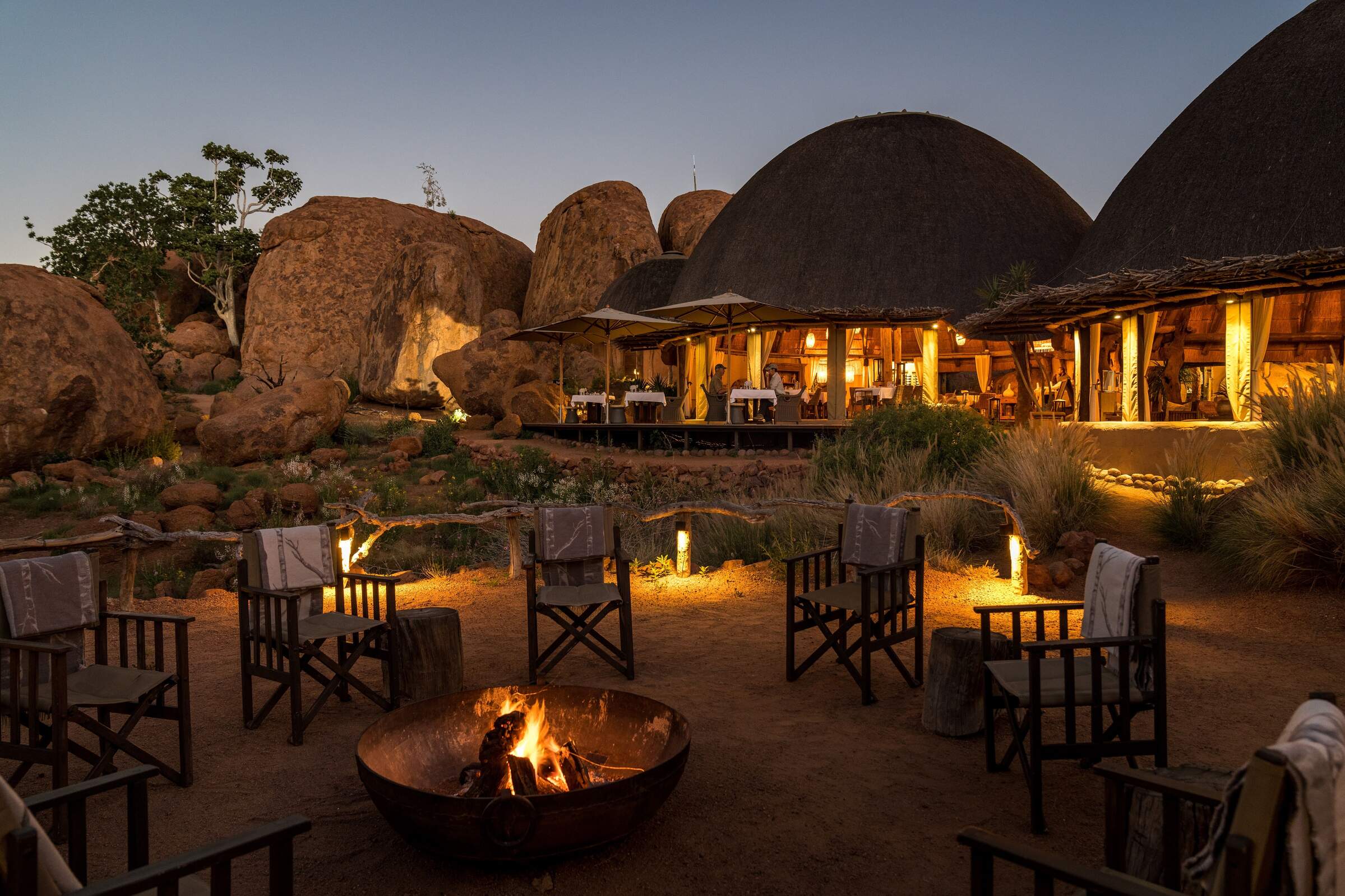
Mowani Mountain Camp
Mowani is a beautiful and stylish mountain retreat in southern Damaraland; it makes a great base for visits toTwyfelfontein.
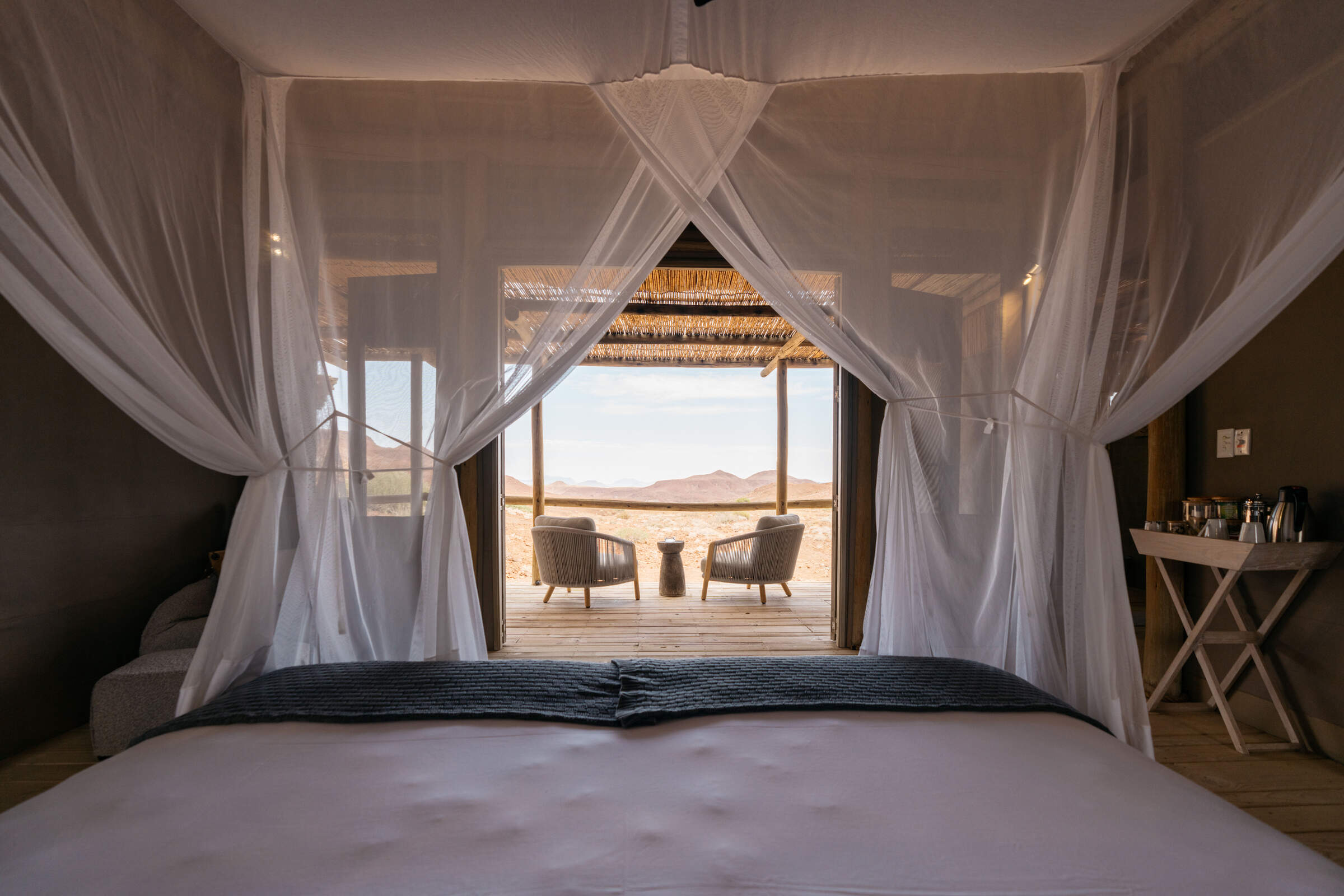
Damaraland Camp
Setting the standard for community partnerships, Damaraland Camp offers a beautiful location, a range of activities – and a genuine welcome.
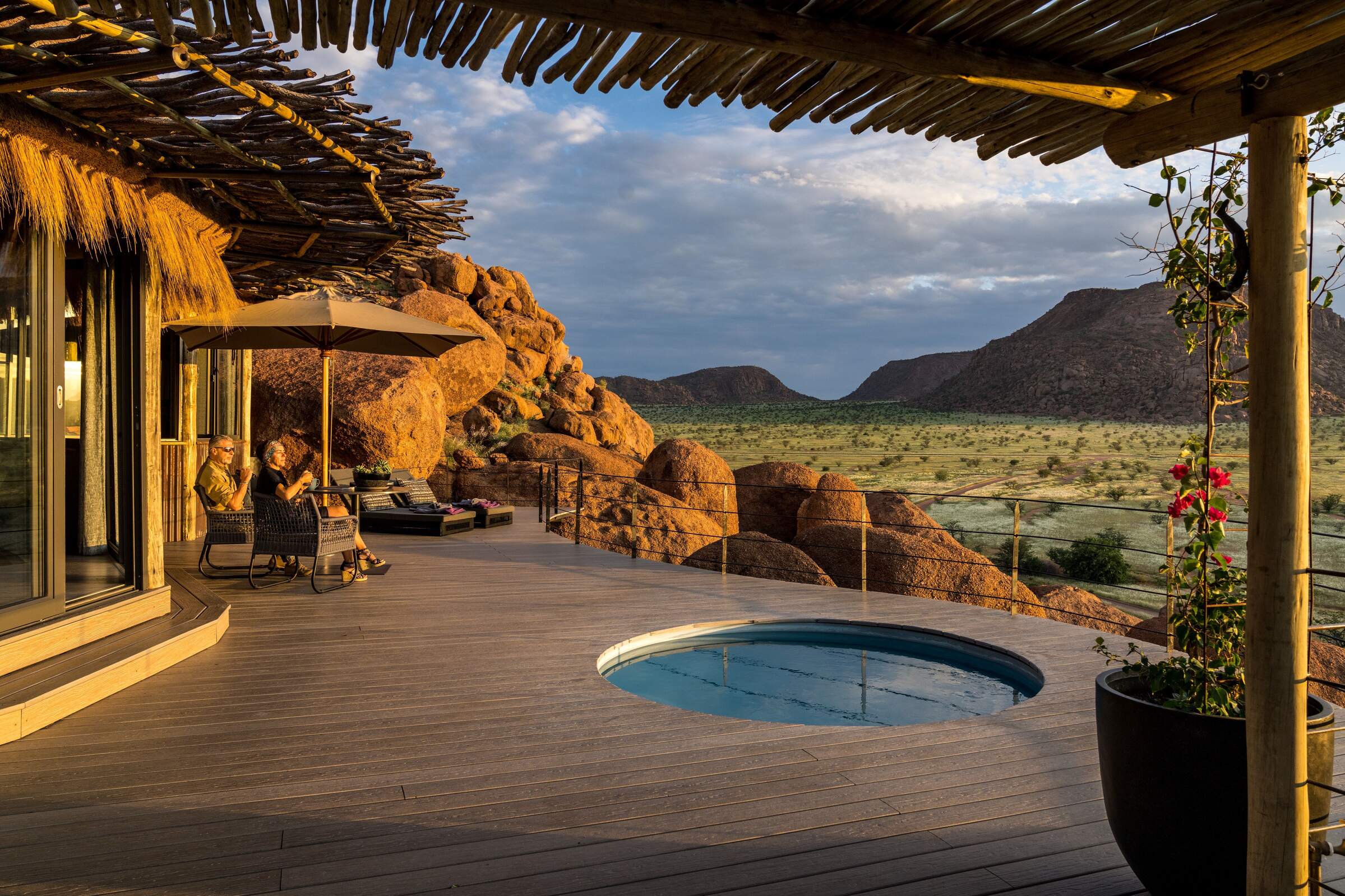
Camp Kipwe
With unusual, igloo-like rooms, open-air bathrooms and beautiful scenery, Camp Kipwe is well placed for nature and cultural excursions.
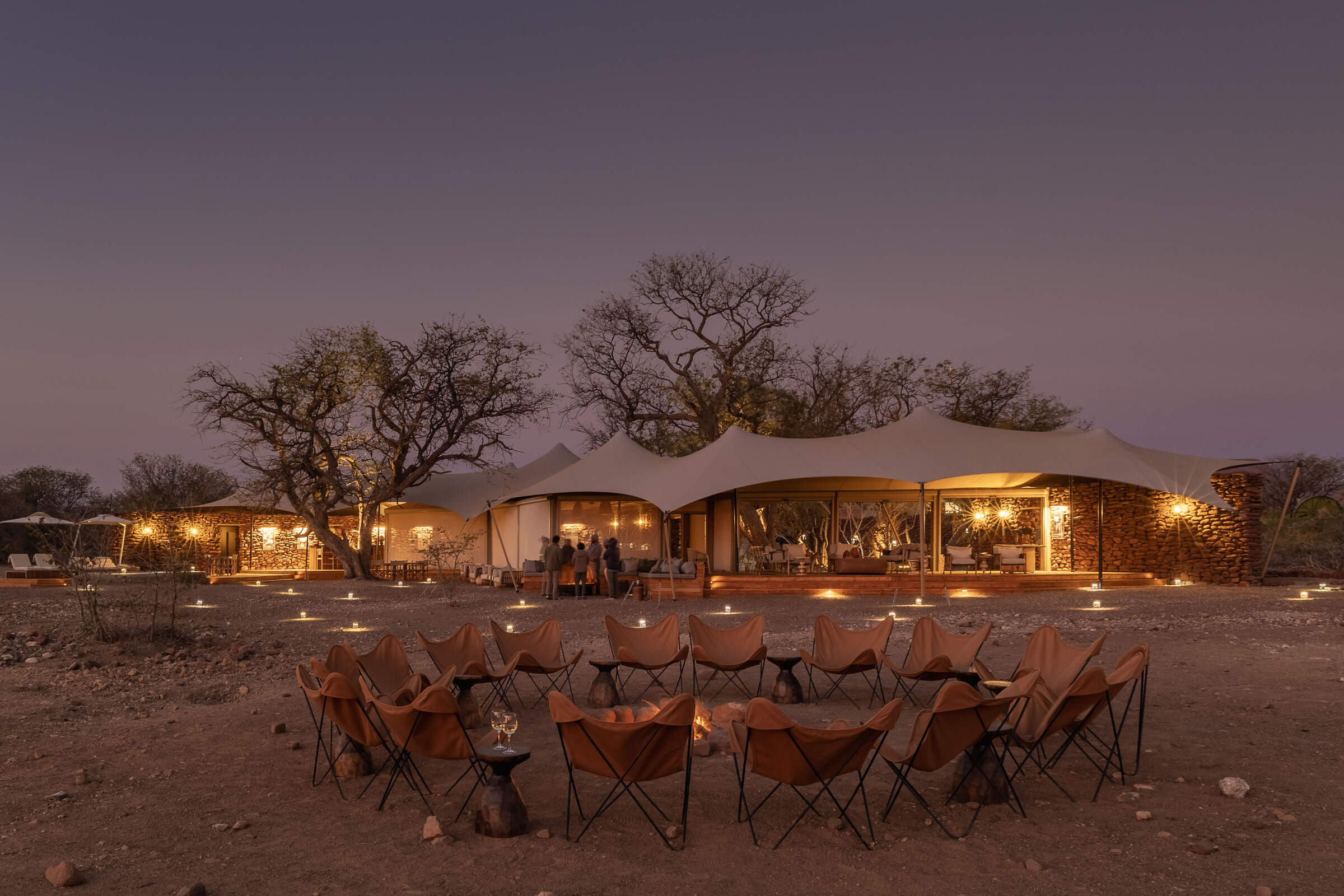
Desert Rhino Camp
Desert Rhino Camp offers a rare opportunity to track black rhino on foot in one of the last true wilderness areas – an amazing experience.
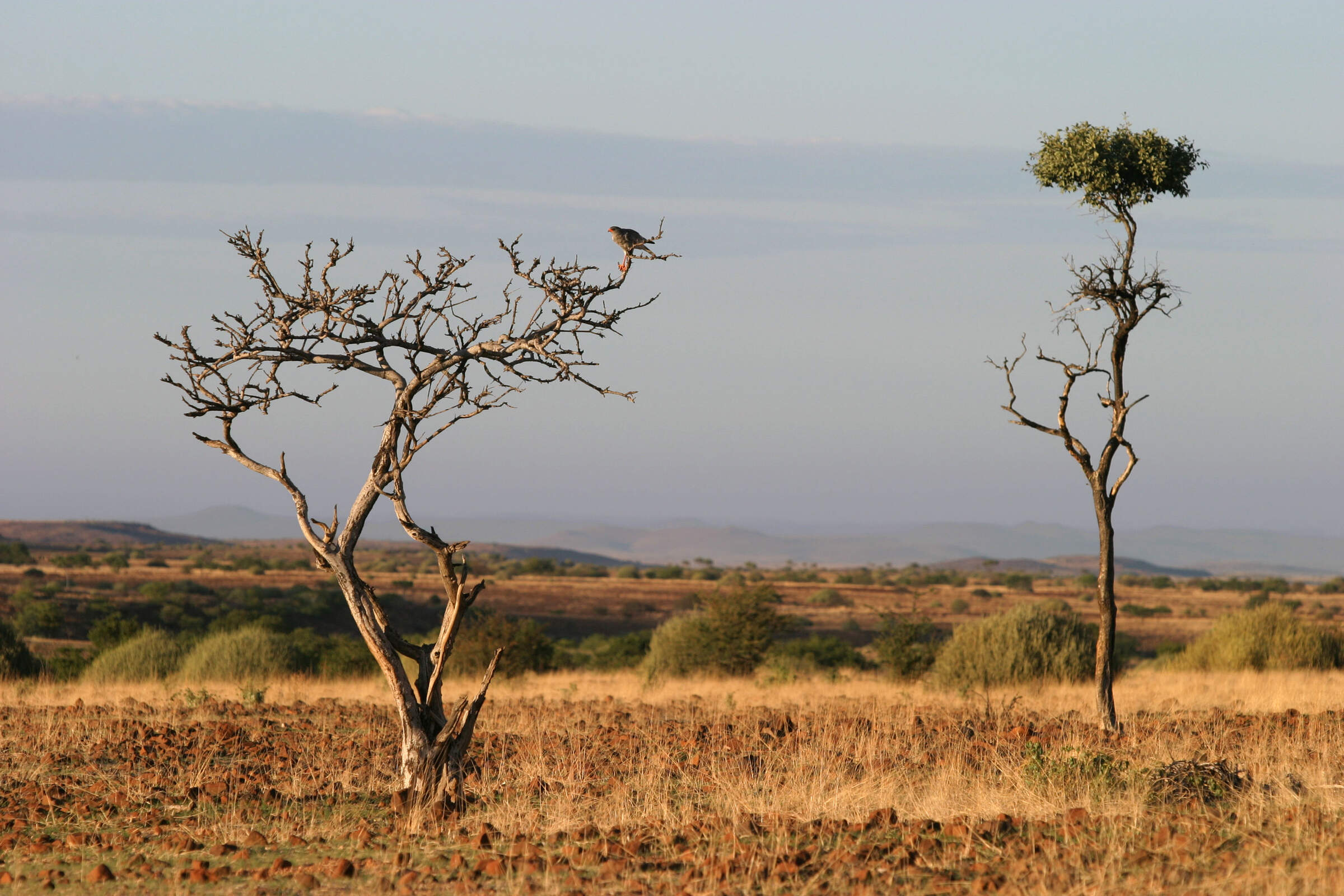
Etendeka Camp
Etendeka is an owner-run camp in the remote and less visited north of Damaraland. The camp is renowned for it's spectacular guided walking trails.
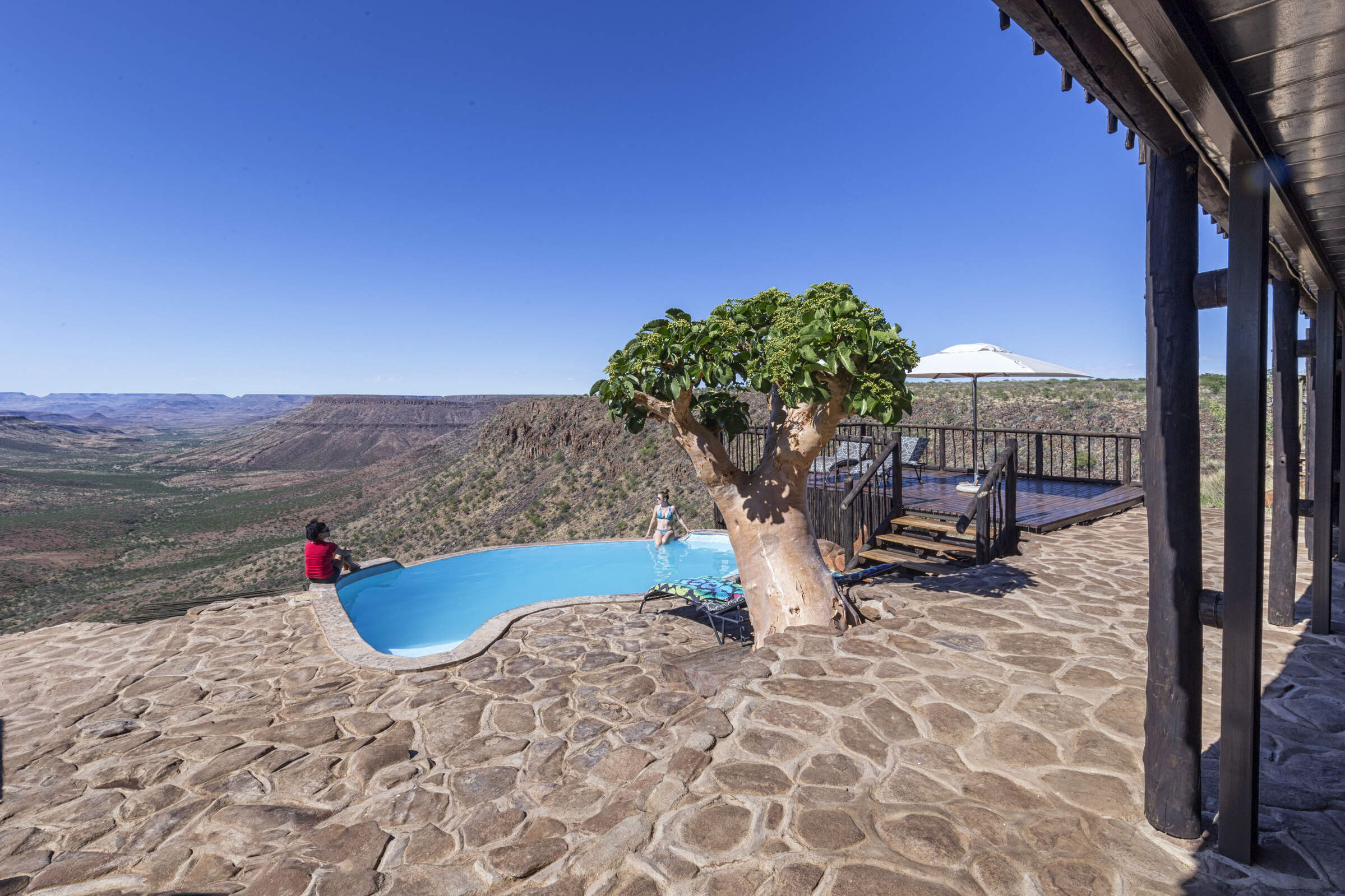
Grootberg Lodge
On the edge of an ancient plateau Grootberg Lodge has a stunning location and arguably the best views of any lodge in Namibia.
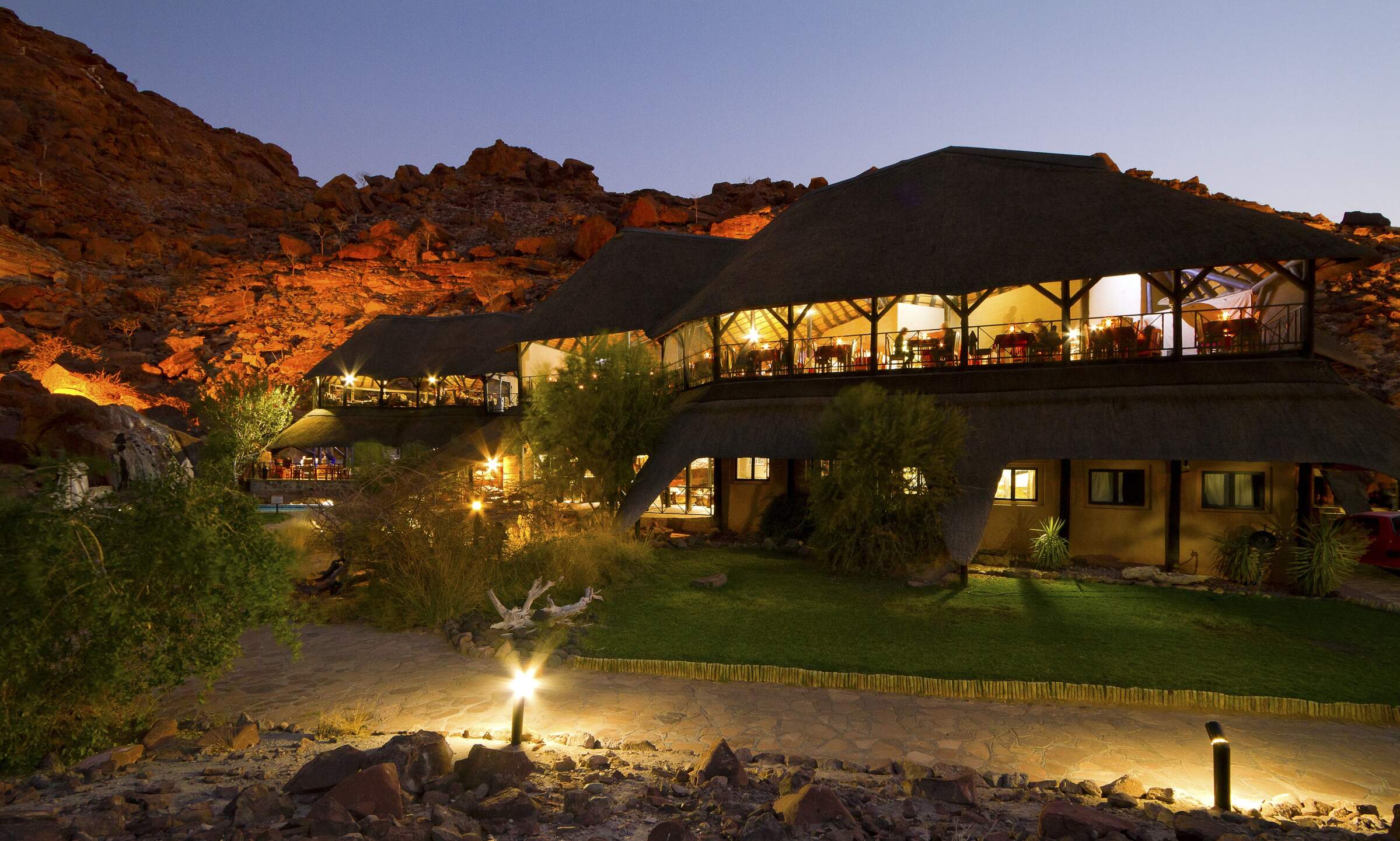
Twyfelfontein C'try Lod.
A large lodge set among the rocks, Twyfelfontein Country Lodge is a convenient base for visiting the rock engravings, which are only 4km away.
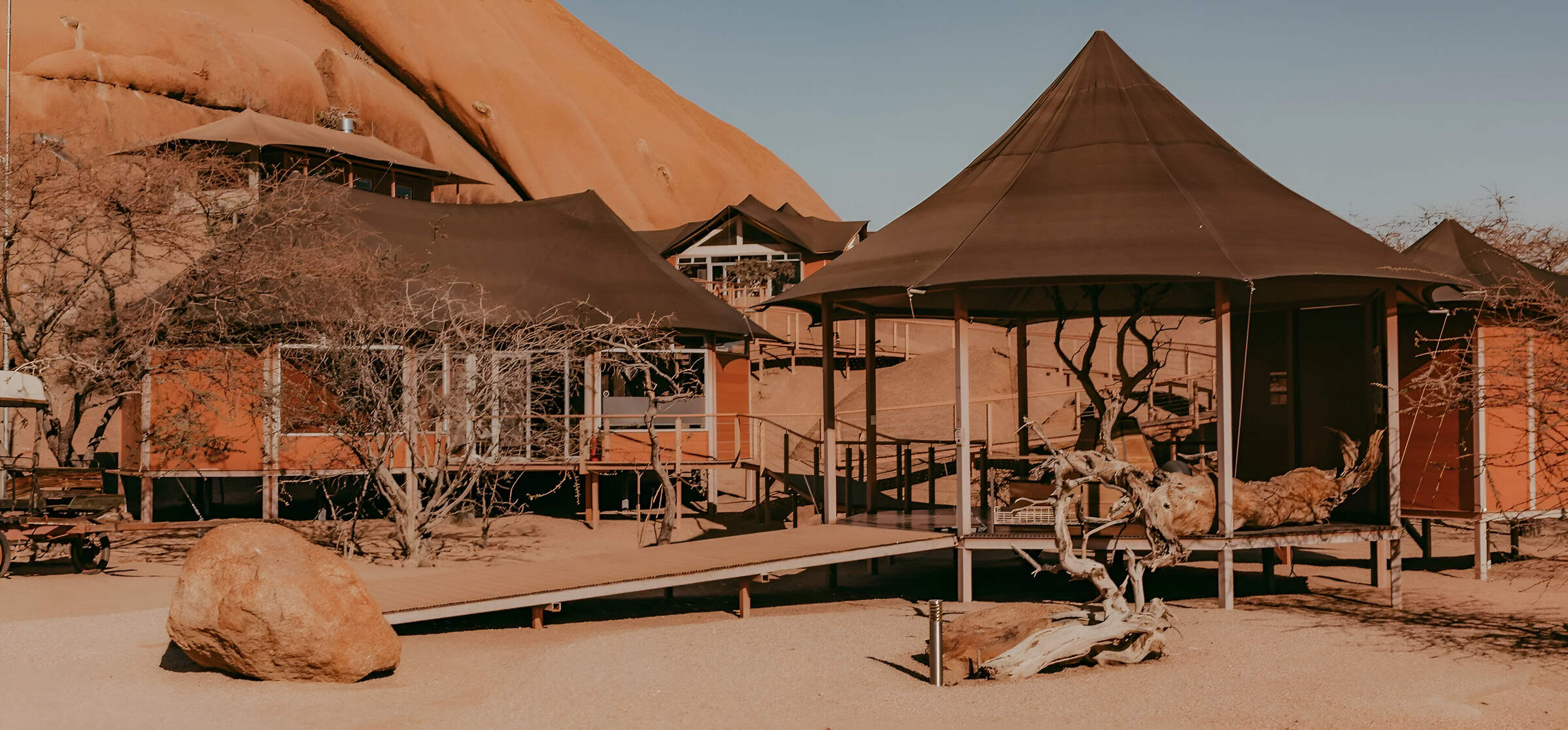
Spitzkoppen Lodge
Spitzkoppen Lodge provides stylish accommodation in an area of scenic grandeur with guided access to sites of ancient Bushman rock art.
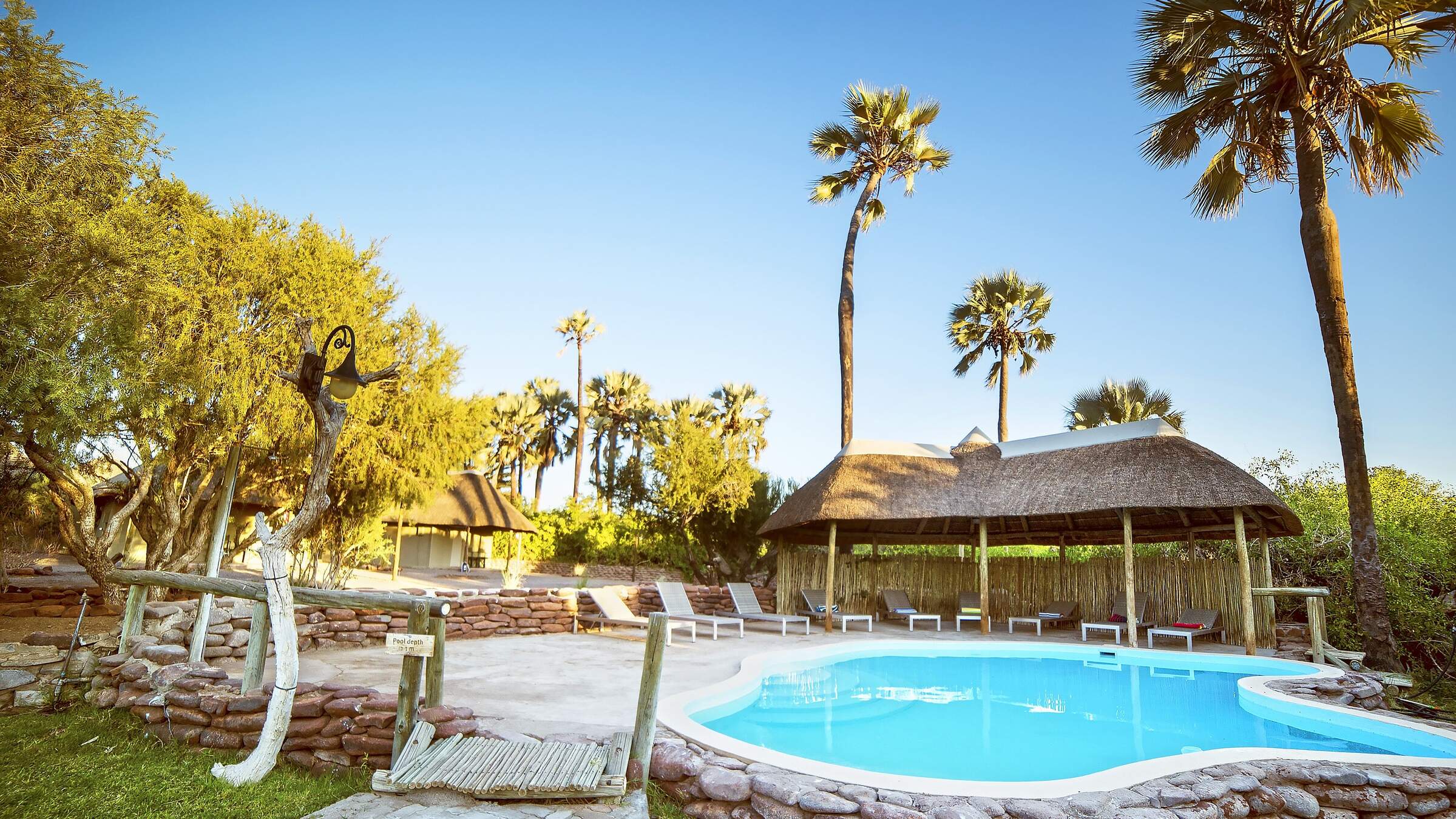
Palmwag Lodge
Palmwag Lodge has a great location by a spring in the Uniab River and offers access to an area where you can see a variety of desert-dwelling animals.
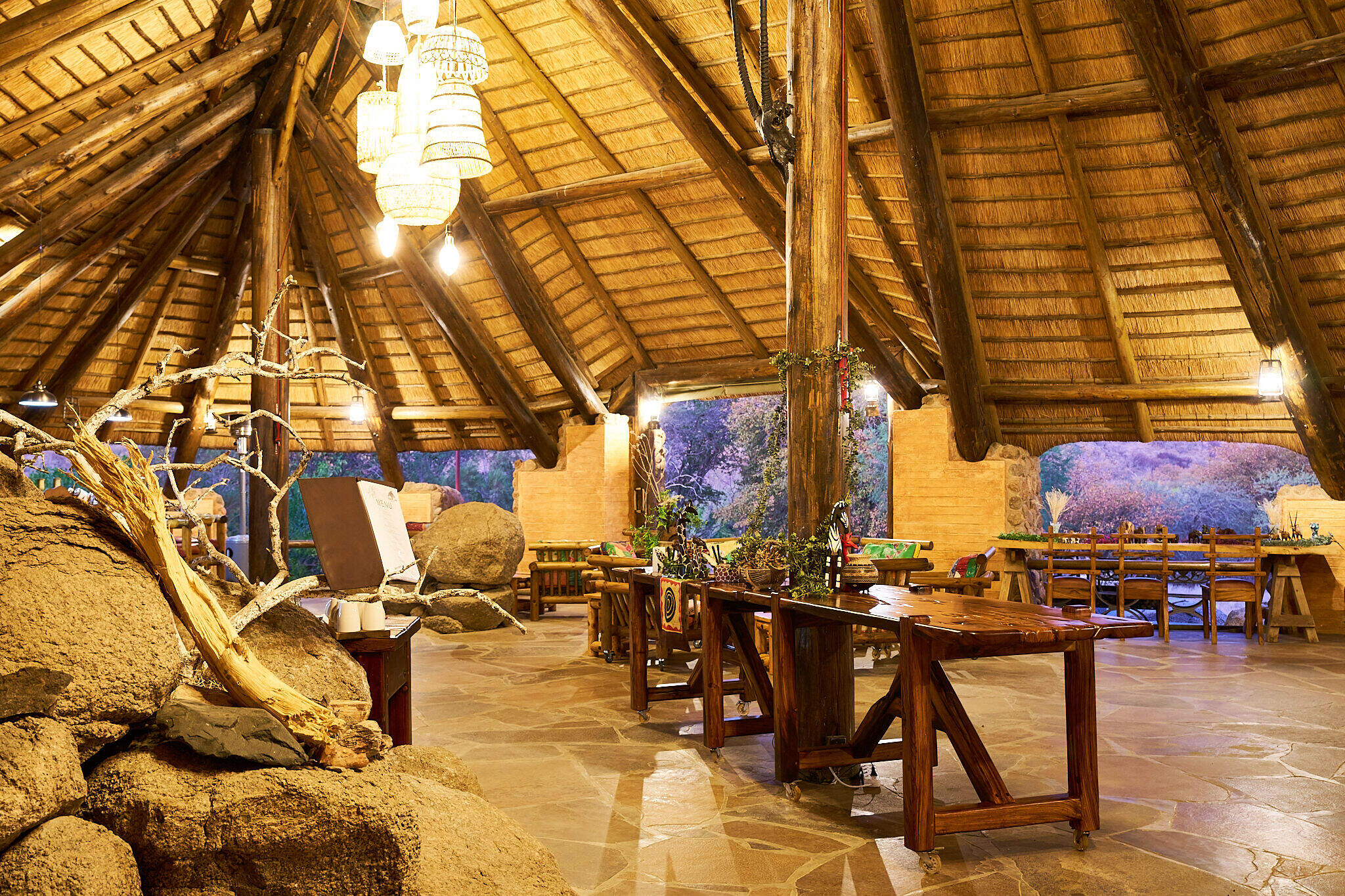
Huab Lodge
Huab is a classic little Namibian Lodge which is slightly off the beaten track in a lesser visited part of Damaraland.
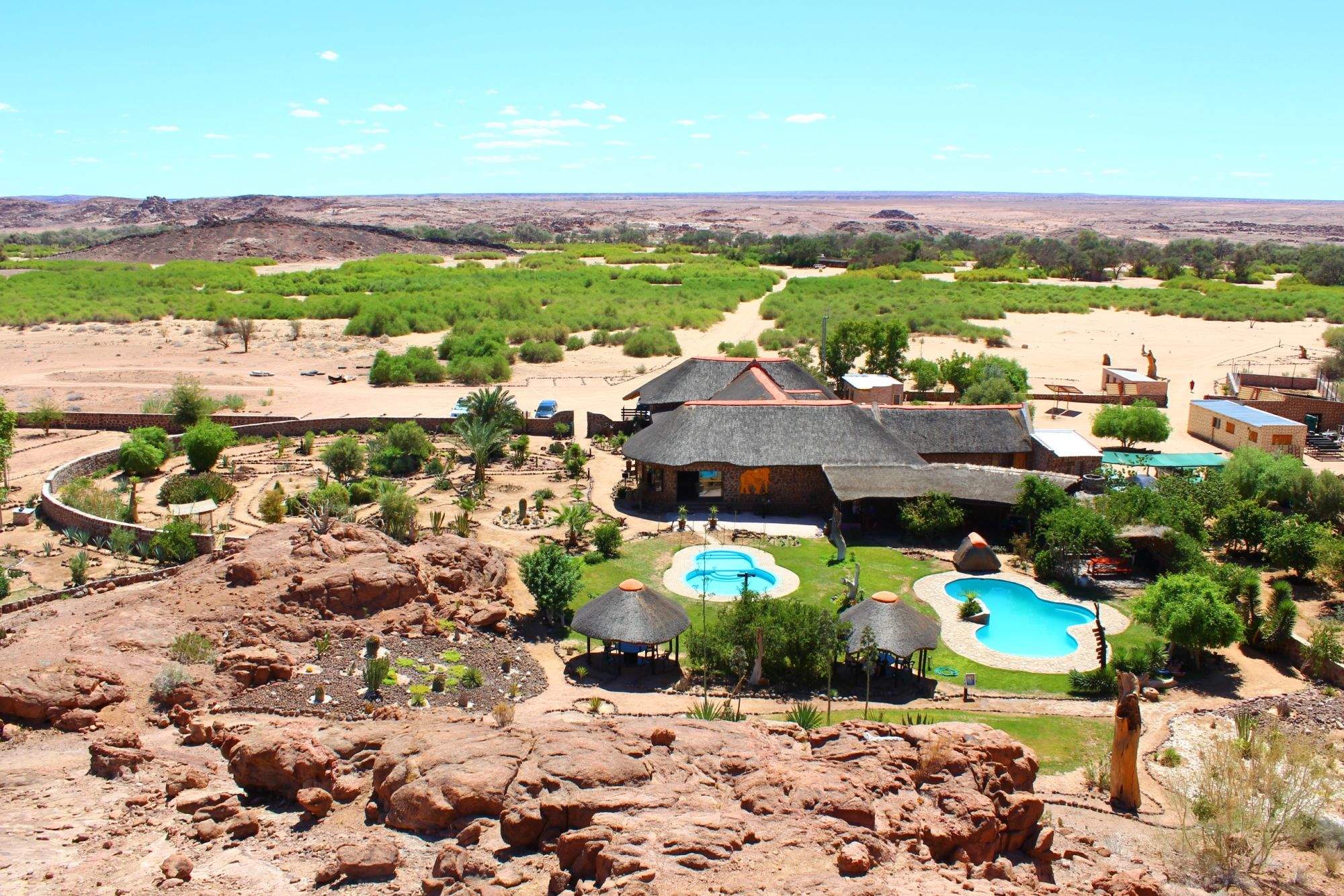
Brandberg White Lady
Brandberg White Lady Lodge, nestled at the foot of its namesake, makes a good base from which to visit bushman rock paintings including the 'White Lady'.
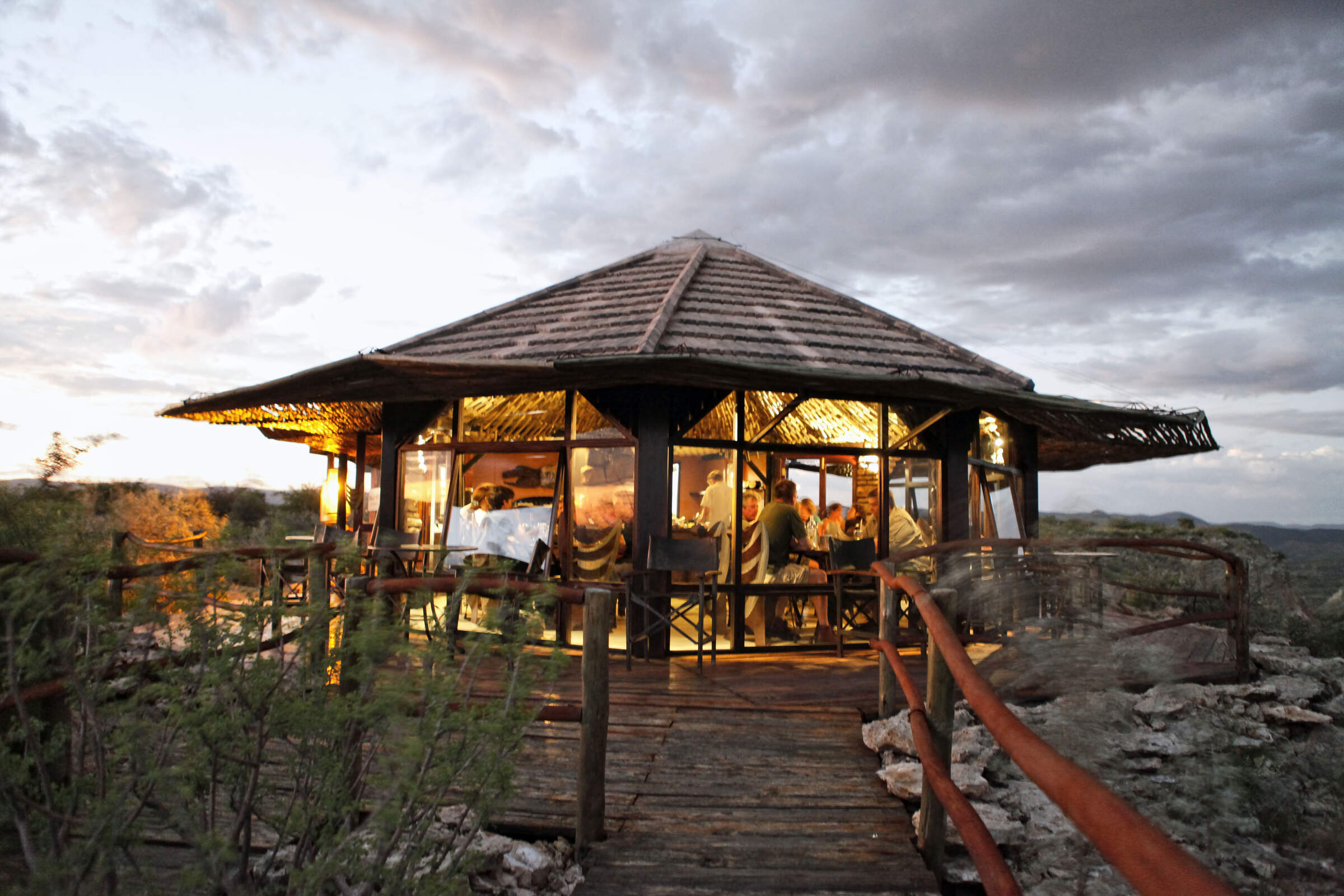
Vingerklip Lodge
Vingerklip Lodge occupies a lovely location, but is a little too far east for guests to visit Damaraland's main attractions.
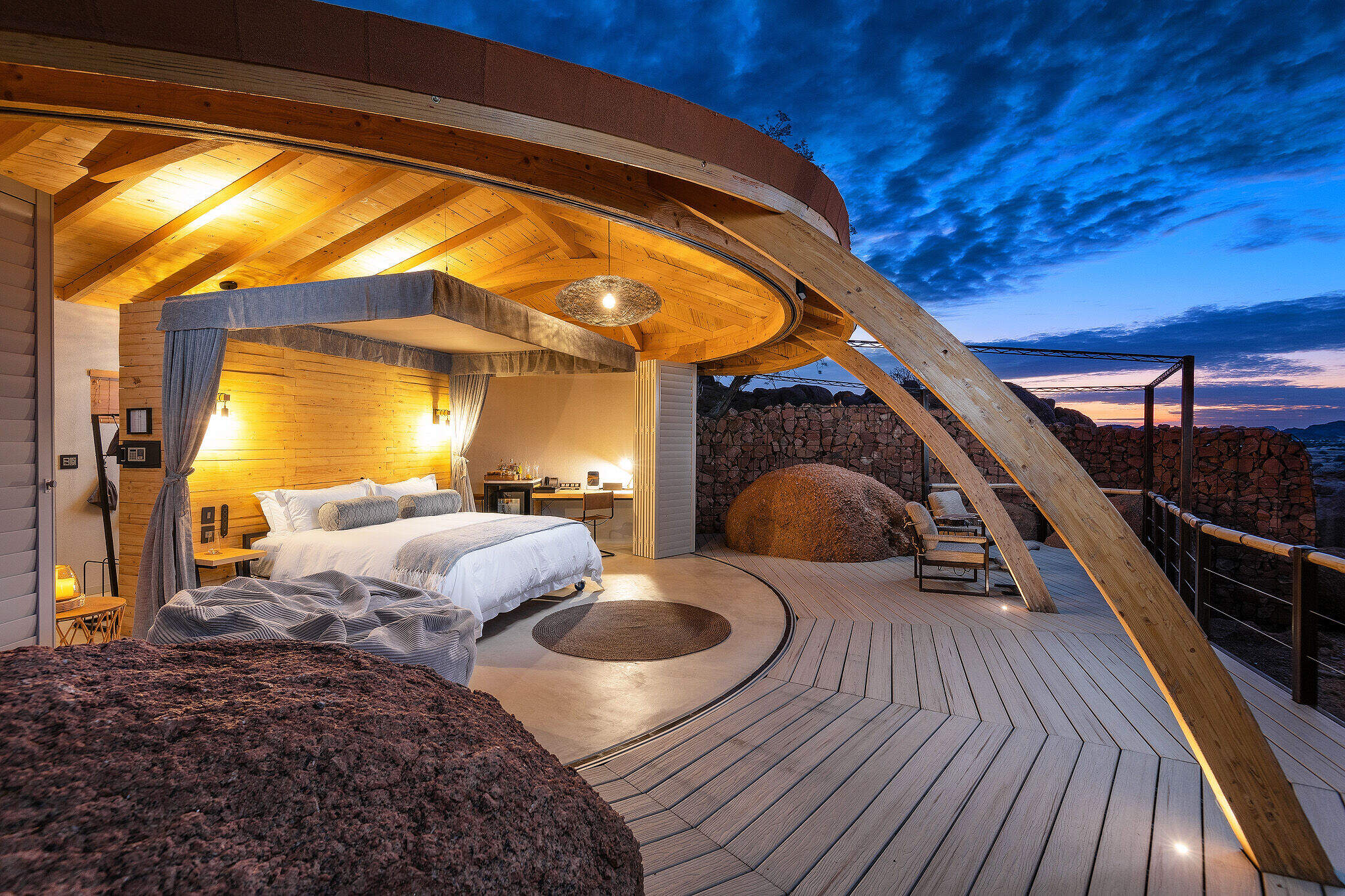
Onduli Ridge
Onduli Ridge is a luxurious, low-impact luxury camp offering top-notch guiding in a remote wilderness area of Damaraland.
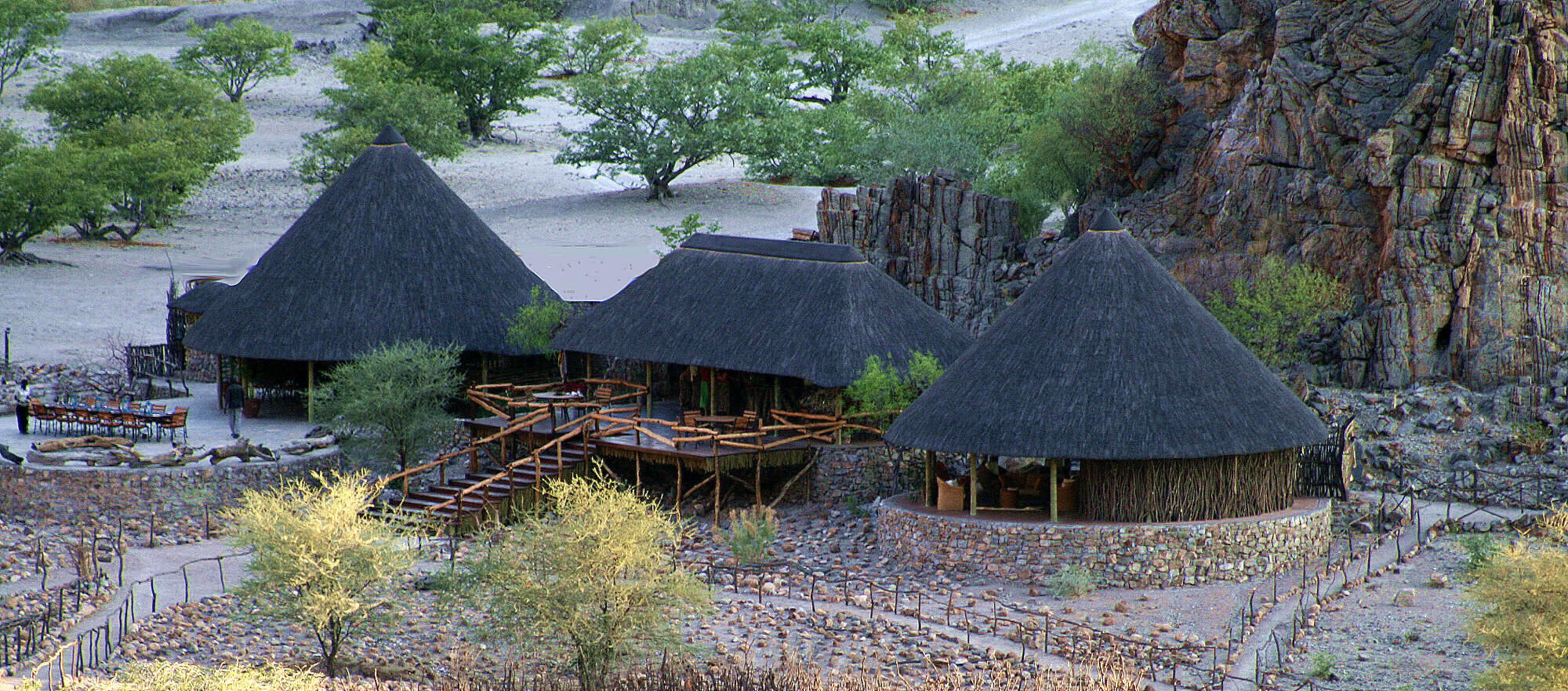
Khowarib Lodge
Khowarib Lodge has a great location overlooking the Hoanib River. This is one of the few places to offer authentic Himba village visits.
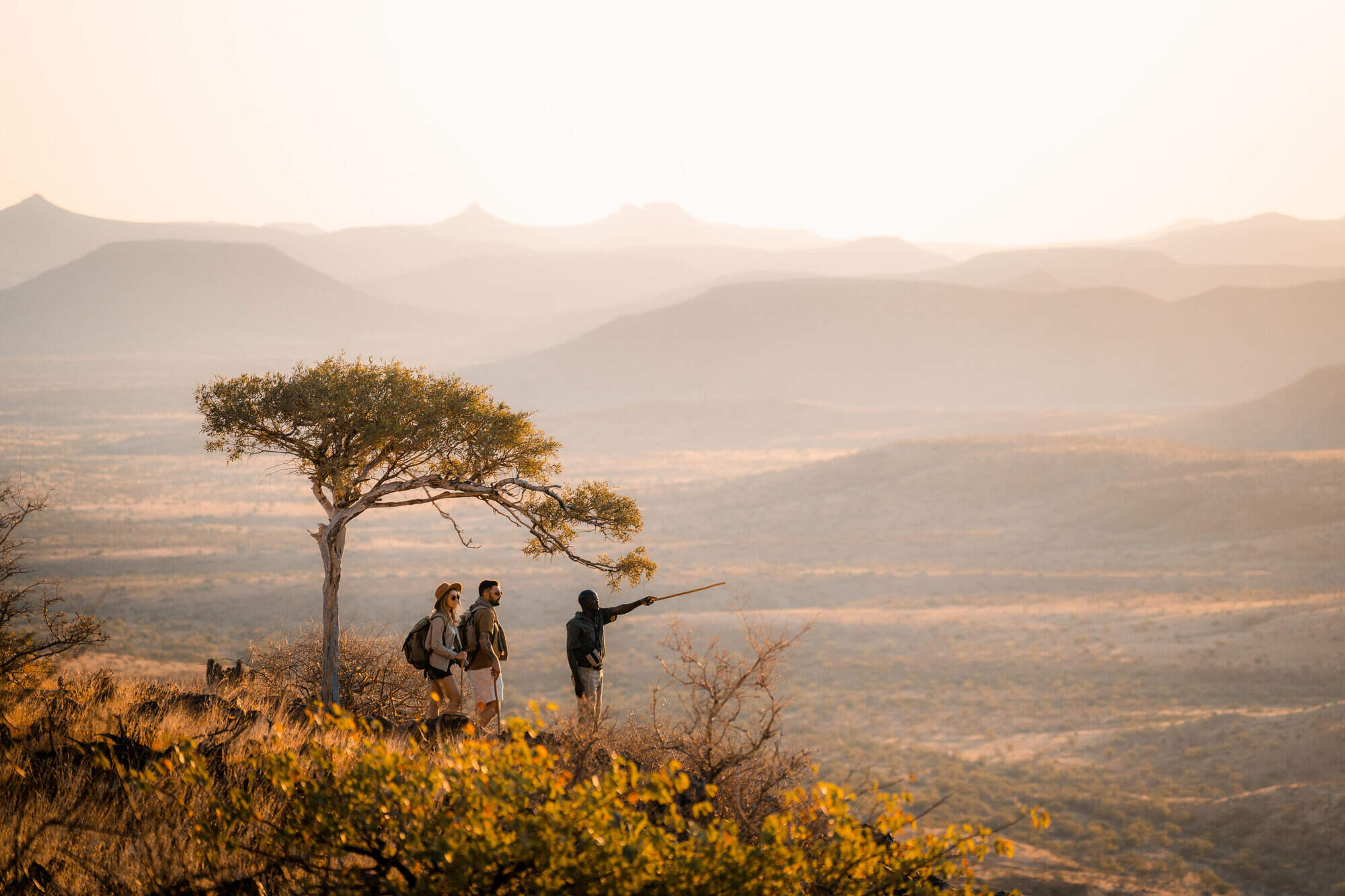
Etendeka Hiking Trail
The Etendeka Walking Trail promises to offer a back-to-basics walking and camping experience in one of Namibia's most remote and untouched wilderness areas.
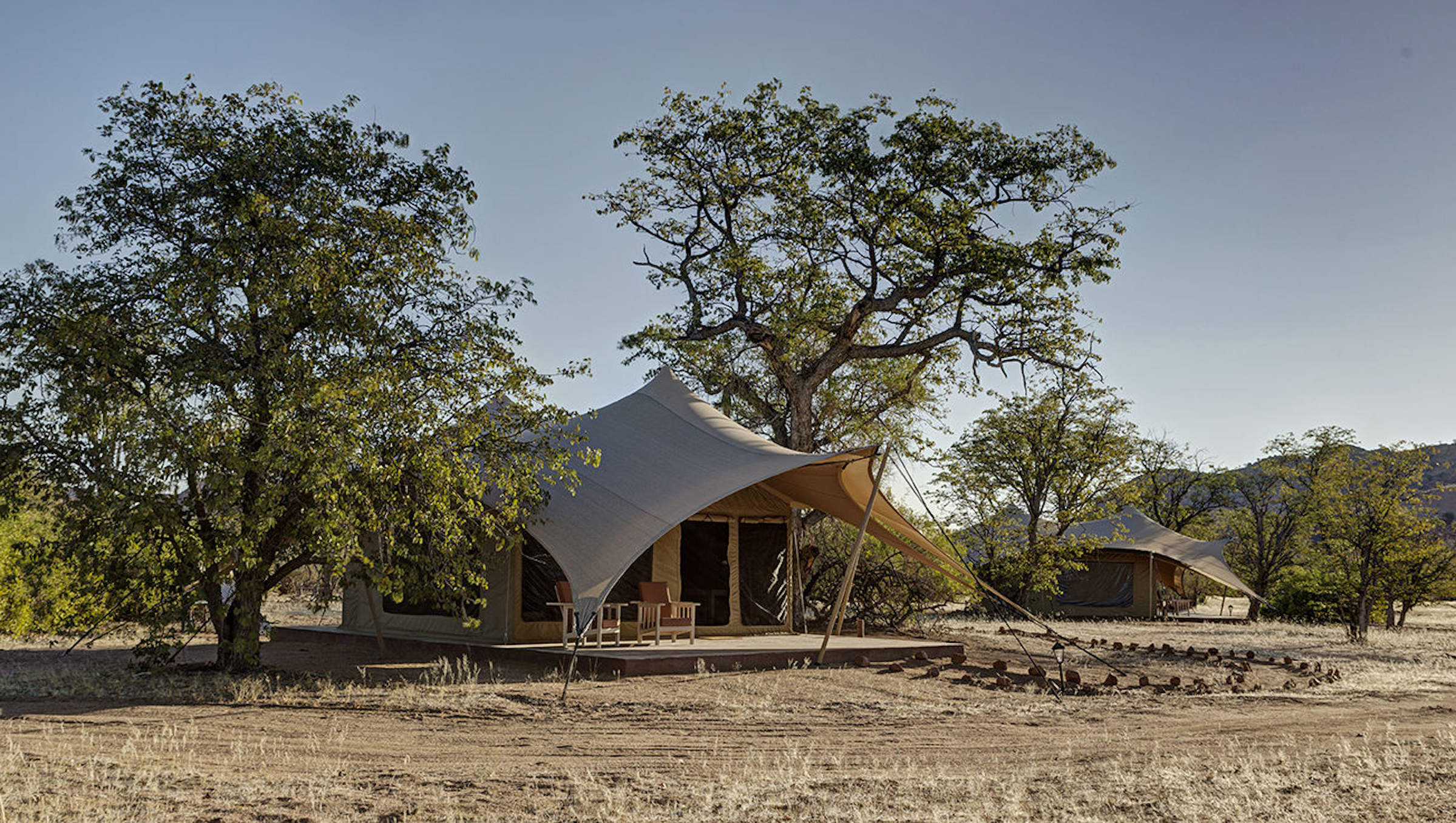
Malansrus Camp
Within easy reach of Twyfelfontein, Malansrus offers a simple but comfortable base for visits to the rock engravings or seek out desert-adapted elephants.
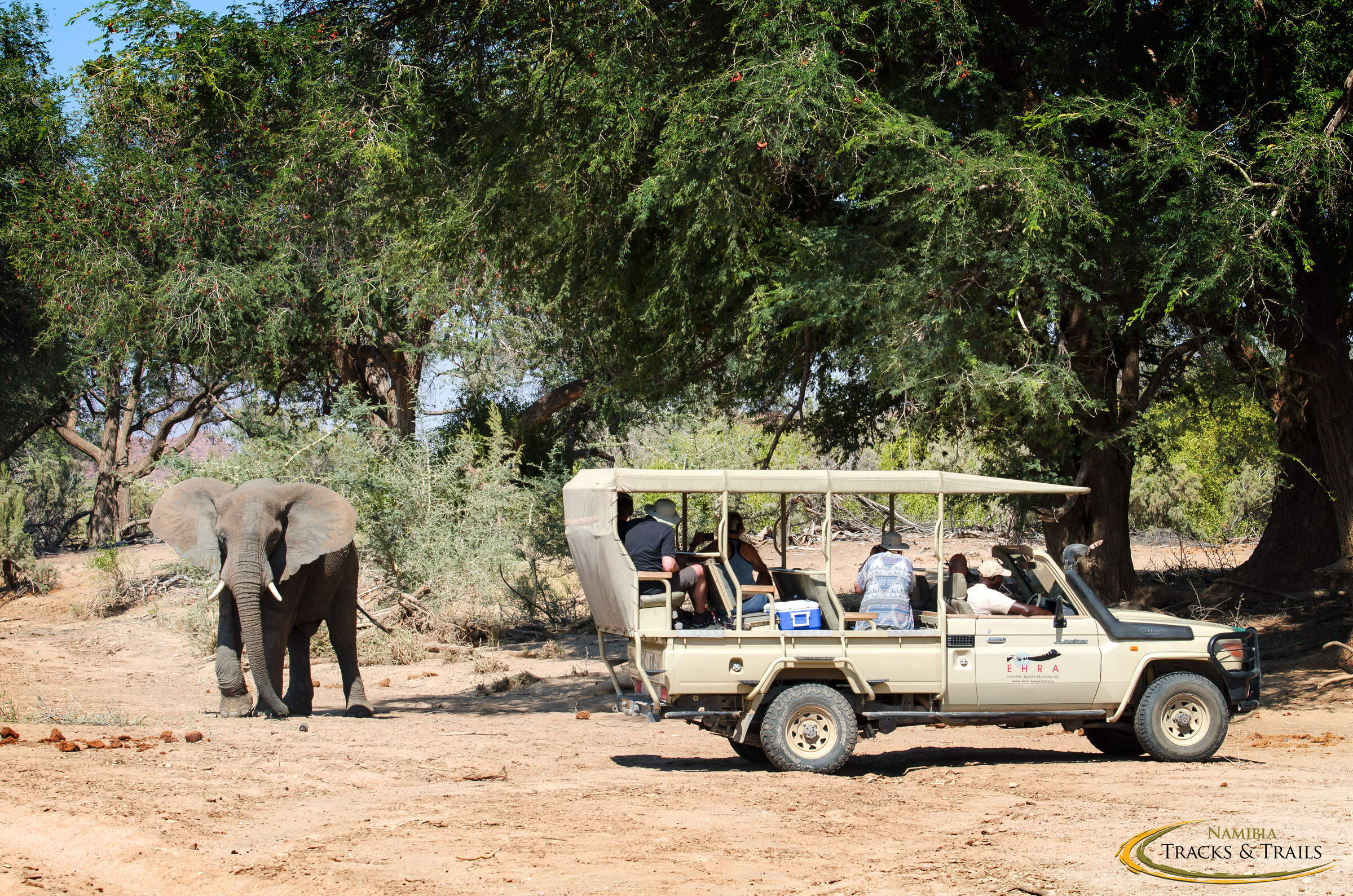
Ozondjou Trails
The simple Ozondjou Trails gives a unique perspective on living with Damaraland’s desert-adapted elephants and how tourism is key to protecting them and the livelihood of the people.
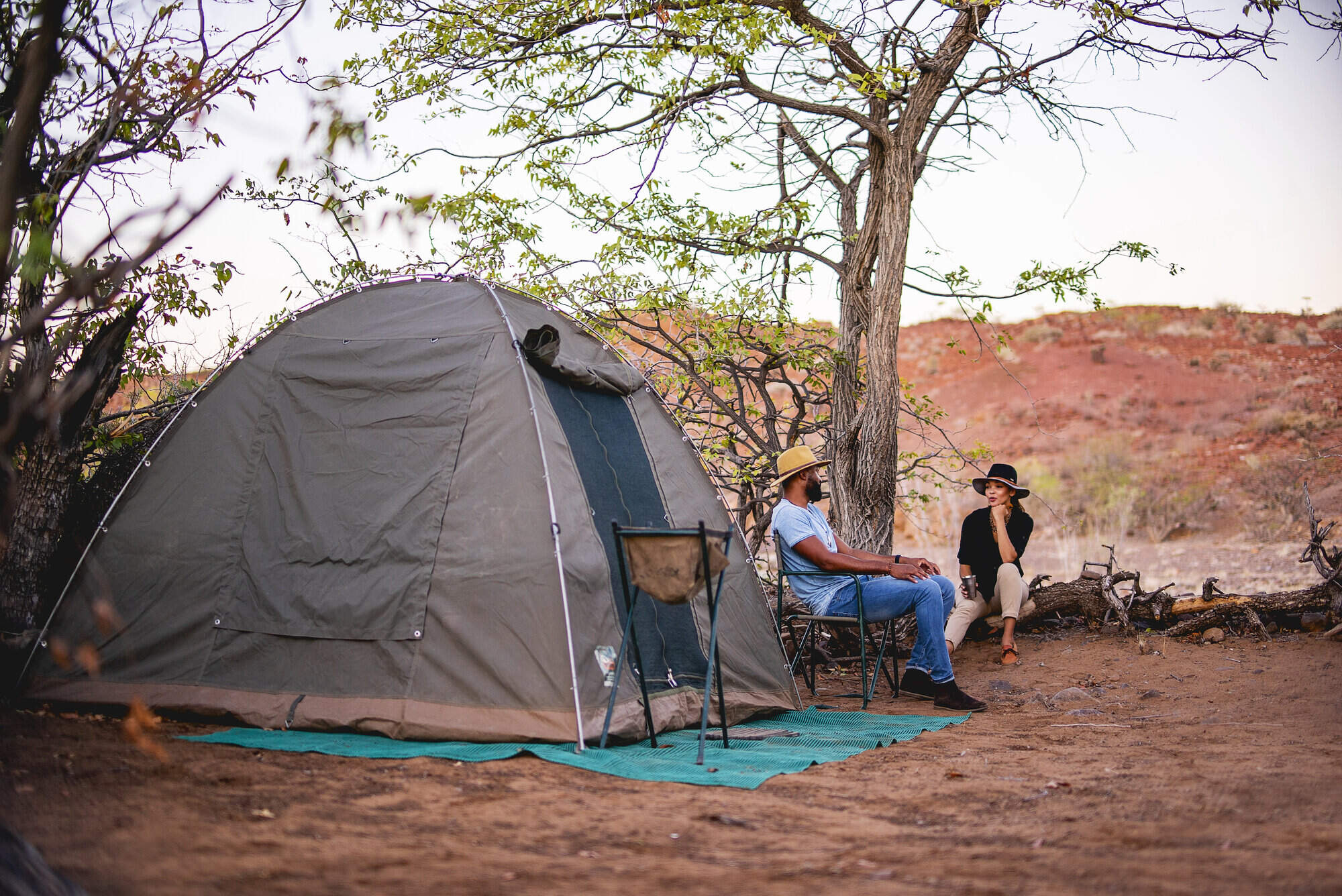
Palmwag Sleep-out
Palmwag Sleep-out is a simple camping experience and a great way to enjoy the remote beauty of the vast Palmwag Concession
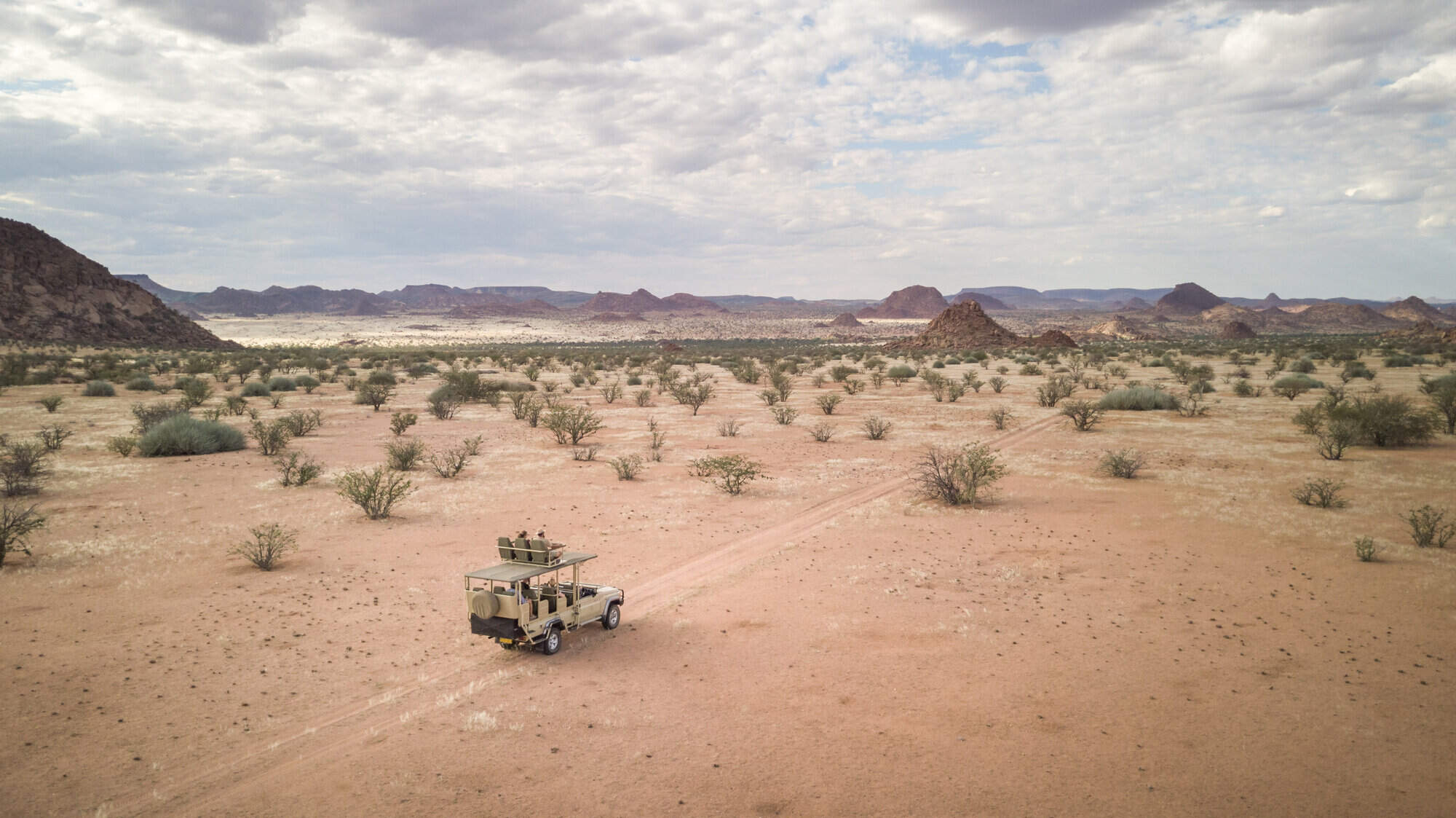
Camp Doros
Small, intimate and with excellent eco-credentials, Camp Doros is set above an ephemeral river within a remote community concession of Damaraland.
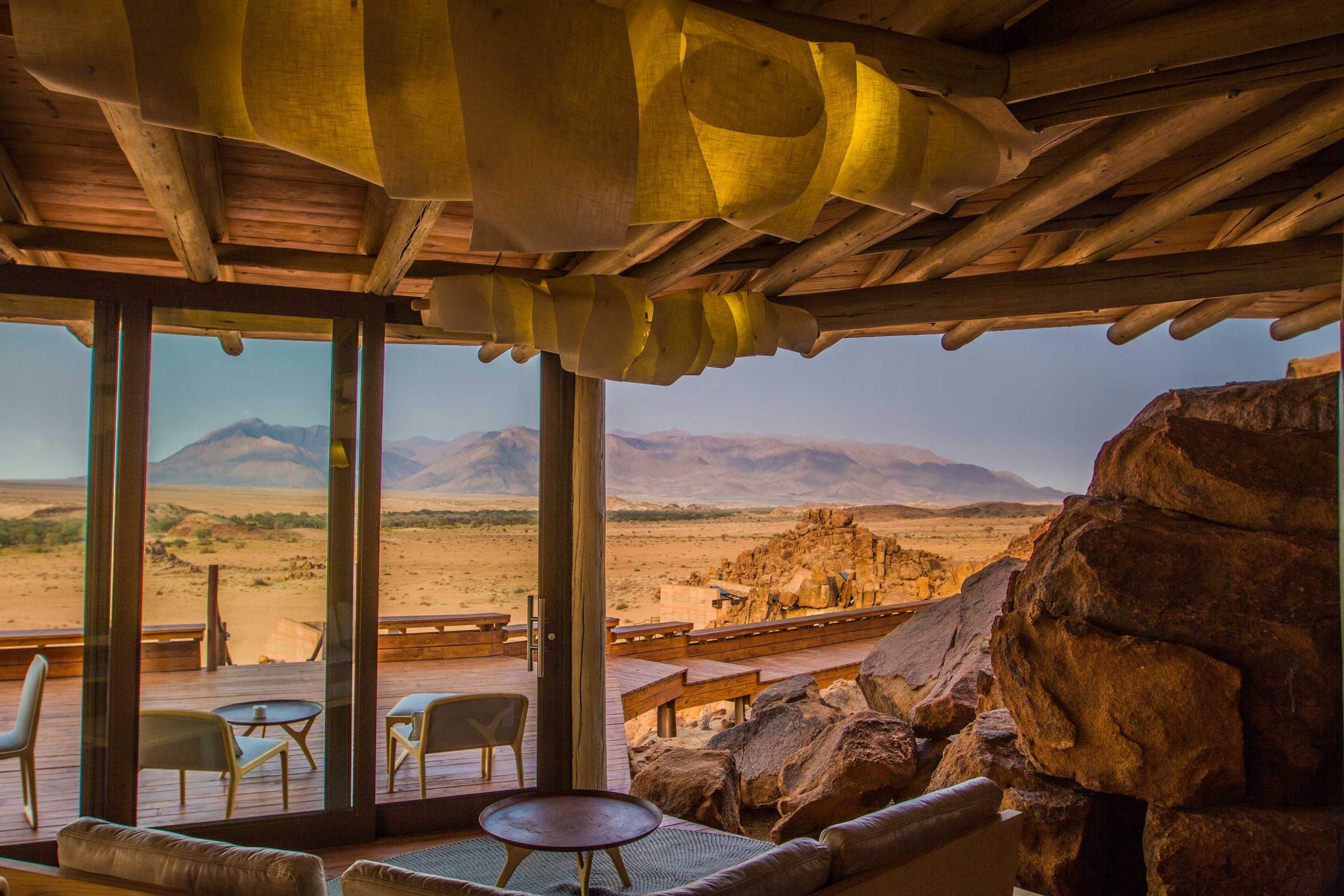
Sorris Sorris Lodge
Overlooking the Brandberg Massif, Sorris Sorris is probably the most luxurious lodge in southern Damaraland.
When to go to Damaraland
Our month by month guide: What it's like to visit Doro Nawas in Damaraland
Jan
Feb
Mar
Apr
May
Jun
Jul
Aug
Sep
Oct
Nov
Dec
Damaraland in January
In Damaraland, January marks the start of the rainy season. The rains, though often light and localised, bring life to the desert landscape.
At Twyfelfontein, the rock engravings glisten after sporadic showers. Some days are clear and hot, with temperatures around 30°C/86°F, while others see dramatic thunderstorms. These can create flash floods in ephemeral riverbeds like the Ugab, temporarily transforming the arid terrain. The greening landscape provides a refreshing backdrop for the ancient rock art at Brandberg Mountain.
Many birds in the region are in full breeding plumage, with migrant species adding to the variety. Wildlife, including the desert-adapted elephants, disperses across the rejuvenated landscape, making sightings more challenging, but rewarding. The Damara Living Museum offers insights into how local communities adapt to these seasonal changes.
- Variable weather: hot, dry or humid with rain
- Occasional localised thunderstorms
- Wildlife dispersed, harder to spot
- Stark mountains against atmospheric skies
- Few tourists, low rates at accommodations
Our view
This is not a great time to visit
Weather in January
Damaraland in February
February is typically the wettest month in Damaraland, though rainfall remains patchy across this predominantly arid region.
The Spitzkoppe granite peaks against thunderous, atmospheric skies create dramatic vistas for photographers. Some days are clear and hot, while others see afternoon thunderstorms that briefly but dramatically charge the landscape. These rains can make travel more challenging, especially to remote sites like the Epupa Falls. However, the landscape feels vibrant and alive, with insects and smaller animals more easily spotted, and seasonal flowers blooming. Many birds and animals are raising their young, offering unique wildlife viewing opportunities.
Despite the rains, the rock art at Twyfelfontein and the Petrified Forest remain accessible.
- Hot and humid with occasional rain showers
- Thunderstorms meander over the landscape
- Birdlife spectacular, migrant species present
- Wildlife harder to see, but landscape lush
- Low tourist numbers, great for solitude
Our view
This is not a great time to visit
Weather in February
Damaraland in March
March in Damaraland usually sees the main rains tailing off, though precipitation varies greatly across the region. Many days are clear, with strong sun driving temperatures up, while others may experience light rainfall.
The landscape often appears vivid and green, providing a striking contrast to the bare rocky outcrops of Spitzkoppe and Brandberg. Animals such as springbok and mountain zebra may be finishing raising their young. Small herds of plains game such as these can be more visible against the greener backdrop. The Damara Living Museum showcases how local communities adapt to these seasonal changes. The clearer skies towards the end of the month make for excellent stargazing at lodges where you can move your bed to sleep under the stars.
- Weather becoming drier as month progresses
- Animals looking healthy after months of plenty
- Balmy nights sleeping under star-filled skies
- Migrant birds begin to depart
- Few tourists, rates often low at lodges
Our view
A good time to visit, with pros & cons
Weather in March
Damaraland in April
April in Damaraland is typically dominated by dry weather, with decreasing chances of rain. Temperatures begin to fall, but days remain pleasantly warm. The rains often leave the landscape verdant, creating stunning photo opportunities at sites like the Etendeka Plateau and Klip Valley.
Animals are in fantastic condition, often with fast-growing young in attendance. The desert-adapted elephants may be more easily spotted as they begin to return to the riverbeds to feed on Ana and Camelthorn trees. With dust washed from the atmosphere, photographers can capture clear shots of spectacular landscapes. Stargazers will enjoy increasingly clear night skies. In the Palmwag Concession, water and food remain in plentiful supply, so finding mammals such as black rhino can still be challenging, but worth the effort.
- Cooler nights, days still warm and pleasant
- Landscape still green from recent rains
- Air clear, for crisp photographs
- Wildlife starting to become easier to find
- Easter sees an increase in visitors
Our view
A good time to visit, with pros & cons
Weather in April
Damaraland in May
By May, Damaraland is usually drying out fast. If rains have been good, the land remains green, especially around natural springs found in valleys and craggy rocksides. The air quality and clarity can be amazing, making this an ideal month for photography at sites like Twyfelfontein and along the remote Hoanib riverbed.
Temperatures are moderate, typically warm with crisp, clear mornings and blue skies. Evenings are cool enough to wear an extra layer. Many lodges still charge low season prices, offering good value. The combination of increasingly good wildlife sightings, beautiful landscapes, and crystal-clear air make May one of the best months to visit Damaraland. It's an excellent time to explore the region's geological wonders, such as the ancient Etendeka lava flows.
- Lovely weather: warm days, cool nights
- Landscape drying out, still some greenery
- Clear, sharp colours for photography
- Wildlife more visible along scenic riverbeds
- Low visitor numbers, moderate lodge rates
Our view
A very good time to visit
Weather in May
Damaraland in June
June sees Damaraland dry and clear, with blue, largely cloudless skies. Days are often lovely and warm, but nights can be cold, sometimes below freezing in desert areas.
Visitors should pack warm clothing for early morning nature drives to spot desert-adapted elephants or black rhinos. Most outdoor pools are too cold for swimming, except for the very dedicated. It’s a particularly good climate for walking; either short walks or perhaps a multi-day hike on the Etendeka Plateau.
Historically, June prices have been low, but Damaraland's increasing popularity means many lodges now consider it high season.
- Clear, bright days and cold nights
- Wonderful for stargazing and night walks
- Good wildlife viewing in remote wildernesses
- Hiking comfortable in cooler temperatures
- Moderate lodge rates, increasing bookings
Our view
A very good time to visit
Weather in June
Damaraland in July
July in Damaraland offers fairly warm temperatures above 20°C/68°F in the middle of the day, but often cold nights. Visitors should dress in layers and be prepared for chilly mornings and evenings.
Rain is extremely rare, and clear skies make for great photographs of the sandstone mountains in morning and evening light. As vegetation shrivels, animals gather near food and water sources, making sightings of desert-adapted wildlife more likely. Elephant herds are more regularly seen along dry riverbeds during this period.
Lodges charge high season rates, and many are booked up well in advance, especially during European school holidays.
- Dry days, clear skies, crisp cold nights
- Peak time for wildlife viewing in Damaraland
- Desert-adapted elephants more easily spotted
- Wonderfully cool for day walks and longer hikes
- High season rates, book accommodations early
Our view
A very good time to visit
Weather in July
Damaraland in August
August is the height of Damaraland's winter. Expect cloudless skies and usually warm sun during the day, but nights can drop to freezing in desert areas. Visitors should bring warm clothes for nature drives and walks in chilly mornings and evenings.
The landscape begins to change from green to golden grasses and stark hillsides. Wildlife sticks close to dry river-beds where desert-adapted elephants dig for water, creating waterholes for other animals.
The clear, dry conditions make it an excellent time for hiking and exploring geological features like the Organ Pipes and Burnt Mountain.
August is the most popular time to visit Damaraland, especially for families. Booking well in advance is essential.
- Perfect weather for outdoor activities
- Excellent wildlife viewing opportunities
- Popular time for hiking and tracking rhino on foot
- Good time for cultural experiences at Damara Living Museum
- Peak season, lodges booked up well in advance
Our view
Fantastic: the very best time to visit
Weather in August
Damaraland in September
September in Damaraland brings blue, cloudless skies and fantastic wildlife viewing. Rain is almost unheard of, and as the month progresses, days and nights quickly get warmer. Daily maximums can reach the low 30s Celsius/mid-80s Fahrenheit, though low humidity keeps it comfortable. The air becomes dustier, occasionally affecting visibility for photographers at sites like Twyfelfontein or Brandberg.
In the Palmwag Concession and along the Ugab River, animals congregate around remaining water sources, making September one of the best months for game viewing, especially for desert-adapted elephants and black rhinos, but also desert-adapted lion. It's a popular month for visitors, particularly safari enthusiasts seeking sightings of these unique sub-species.
The Himba at Khowarib provide insights into how local communities adapt to the dry season.
- Warm days, nights getting warmer
- Landscape golden brown, very photogenic
- Prime time for seeing desert-adapted wildlife
- Air can be hazy with dust
- High season rates, book well in advance
Our view
Fantastic: the very best time to visit
Weather in September
Damaraland in October
Damaraland is usually at its hottest and driest in October. Temperatures build throughout the month, with daily highs potentially exceeding 40°C/104°F towards the end. The extreme dryness, though, makes even these high temperatures bearable.
Wildlife watching is at its best, particularly in areas like the remote Palmwag Concession and along the Hoanib River. October is popular among wildlife enthusiasts, as shyer species such as brown hyena and cheetah are more regularly seen. However, dust and occasional smoke may make the air hazy, challenging landscape photographers but creating beautiful sunsets.
Visitor numbers can decrease towards the end of the month, potentially allowing for last-minute bookings at some lodges.
- Hot and dry, true desert conditions
- Wildlife congregates at remaining water
- Excellent month for photographing sunsets
- Peak tourist time, expect higher rates
- Unusual species like brown hyena more regularly seen
Our view
A very good time to visit
Weather in October
Damaraland in November
November in Damaraland is unpredictable; sometimes dry and hot, sometimes cloudier and cooler. Typically, mornings are hot and clear, with clouds gathering from the afternoon. Humidity builds, occasionally resulting in spectacular thunderstorms with convection rainfall in late afternoons. These storms are usually localised and may not reach desert areas.
Places receiving good rain, like parts of the Palmwag Concession, quickly turn green, softening the landscape. Many mammals give birth, offering unique wildlife viewing opportunities. Once rains settle in waterholes, wildlife disperses in search of food, making game viewing more challenging. However, this is an excellent time for birdwatchers, with migrant species arriving and taking on breeding plumage.
The rock art at Twyfelfontein and Brandberg can be particularly striking after light rains.
- Variable weather, possibility of rain
- New growth if rains arrive, landscape greens
- Wildlife viewing still good, with babies often born
- Shoulder season rates offer better value
- Birdlife increases with migrant arrivals
Our view
A good time to visit, with pros & cons
Weather in November
Damaraland in December
December is often a dry month between November’s short rains and the main rains in January, and is one of its hottest months. Occasional short, often spectacular thunderstorms are often highly localised and generally welcomed, clearing the air of dust and allowing plant life to flourish. This creates a green carpet across the usually arid landscape, providing food for young animals.
Wildlife, including the desert-adapted elephants, disperses widely as food is more plentiful, making game viewing in areas like the Palmwag Concession more challenging. But sightings in early December can be enjoyed and photographed at leisure often with few or no other viewers. Many birds are breeding, sporting their most colorful plumage.
Christmas and New Year fall within local summer holidays, so accommodation options can be surprisingly busy, especially in cooler areas near the coast.
- Hot days, possibility of refreshing showers
- Landscape may become green with early rains
- Good time for seeing young animals
- Desert-adapted species less concentrated
- Holiday season brings more visitors
Our view
This is not a great time to visit
Weather in December

Looking for inspiration on where to travel next?
Visit our trip chooser to explore your options and find inspiration for your perfect African adventure
Inspire me